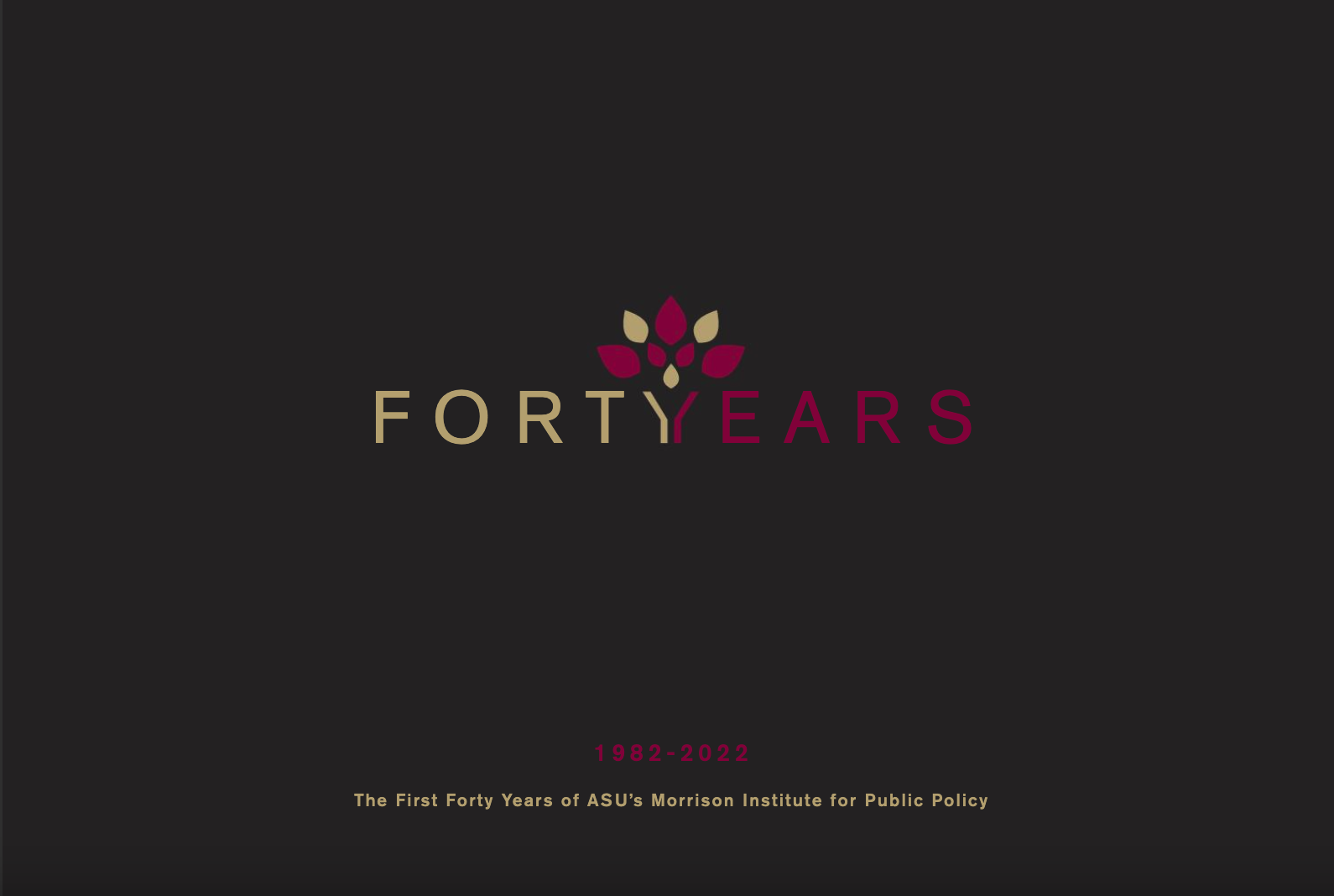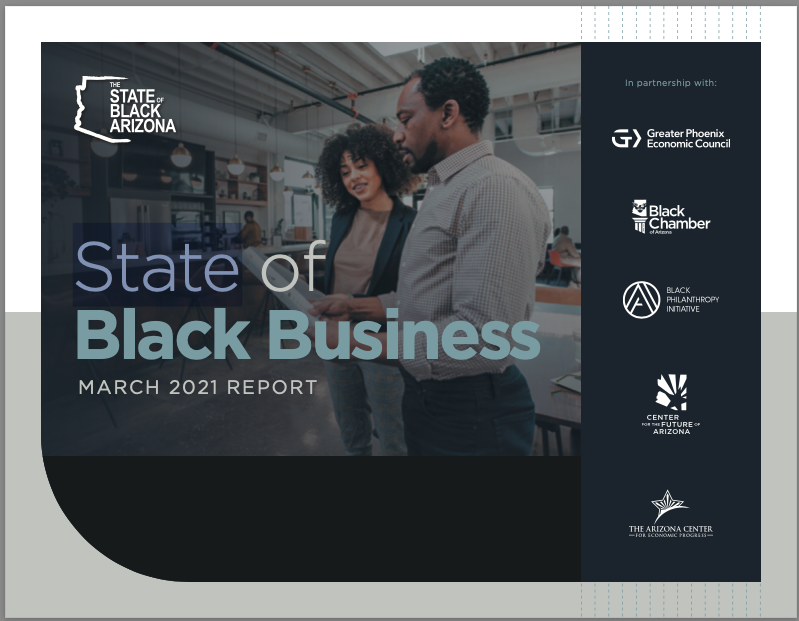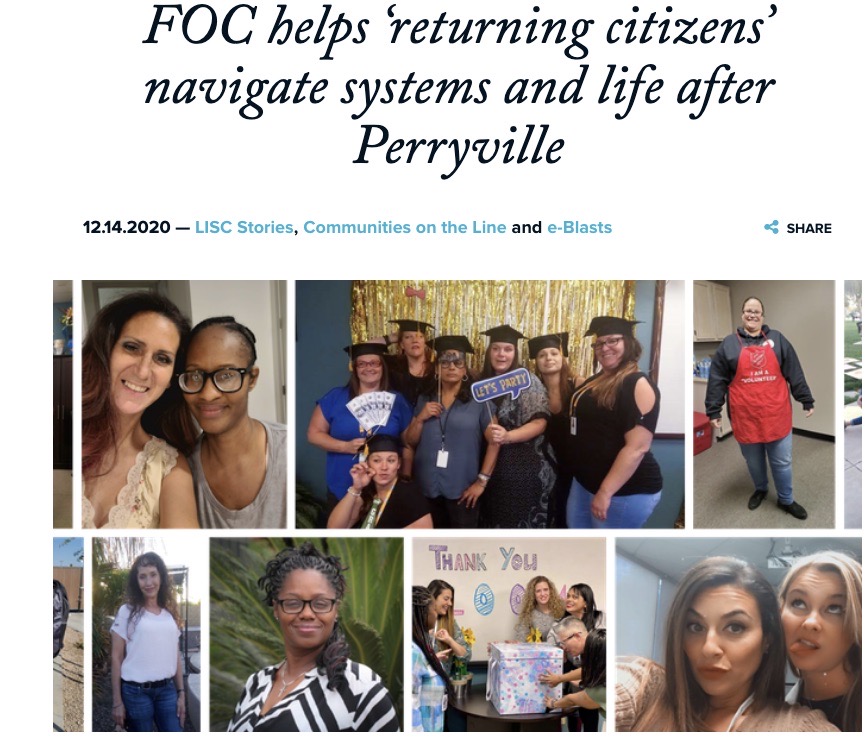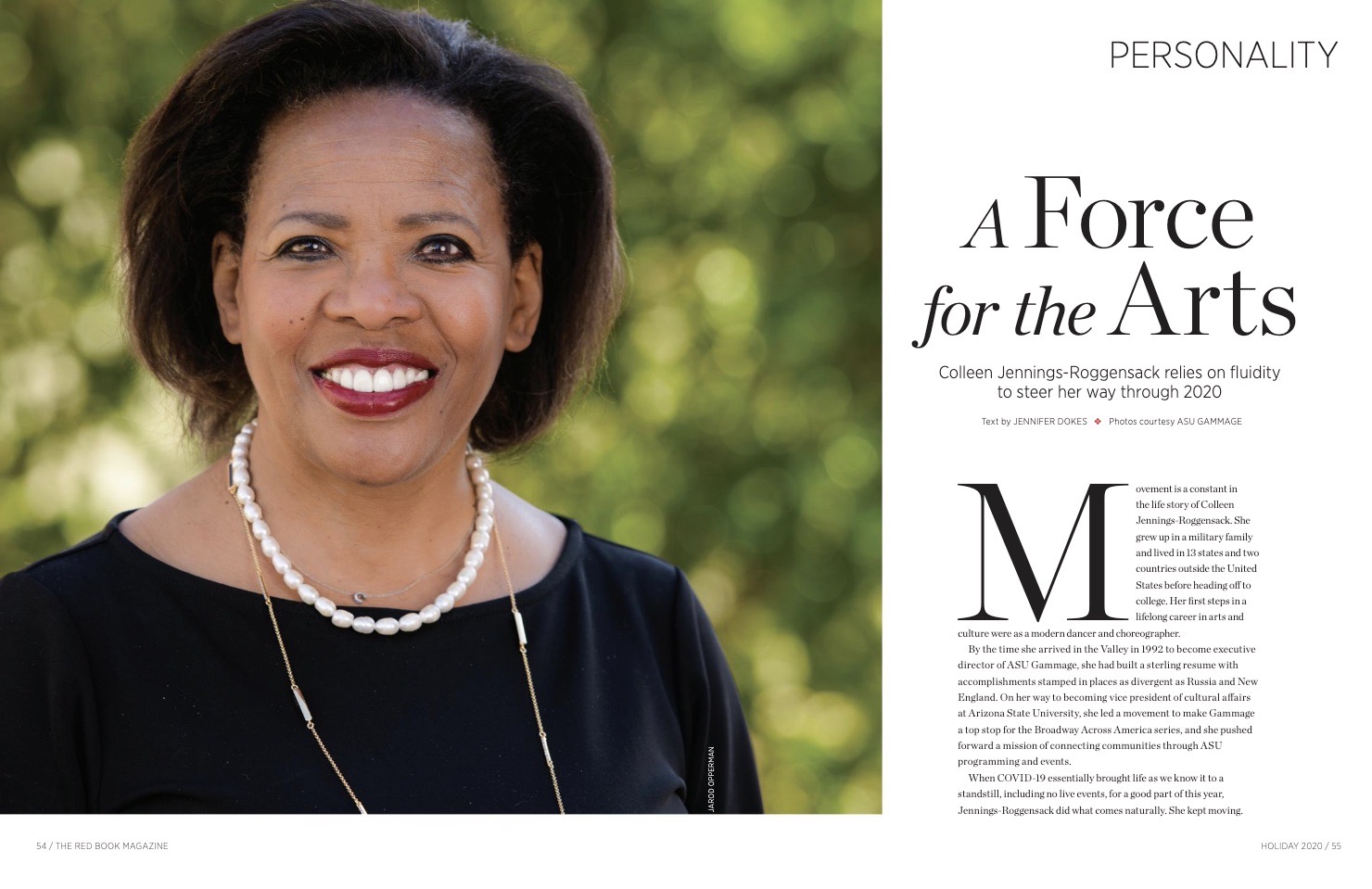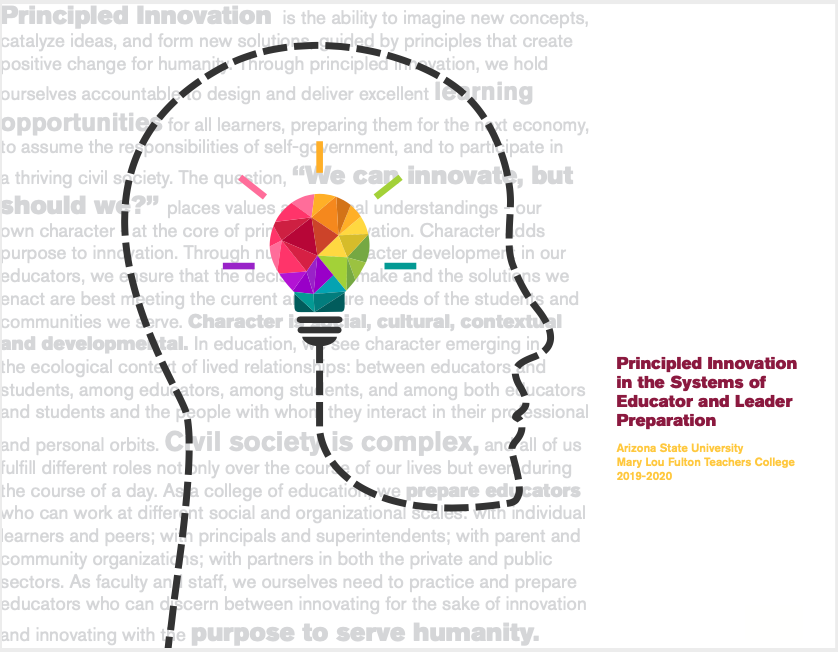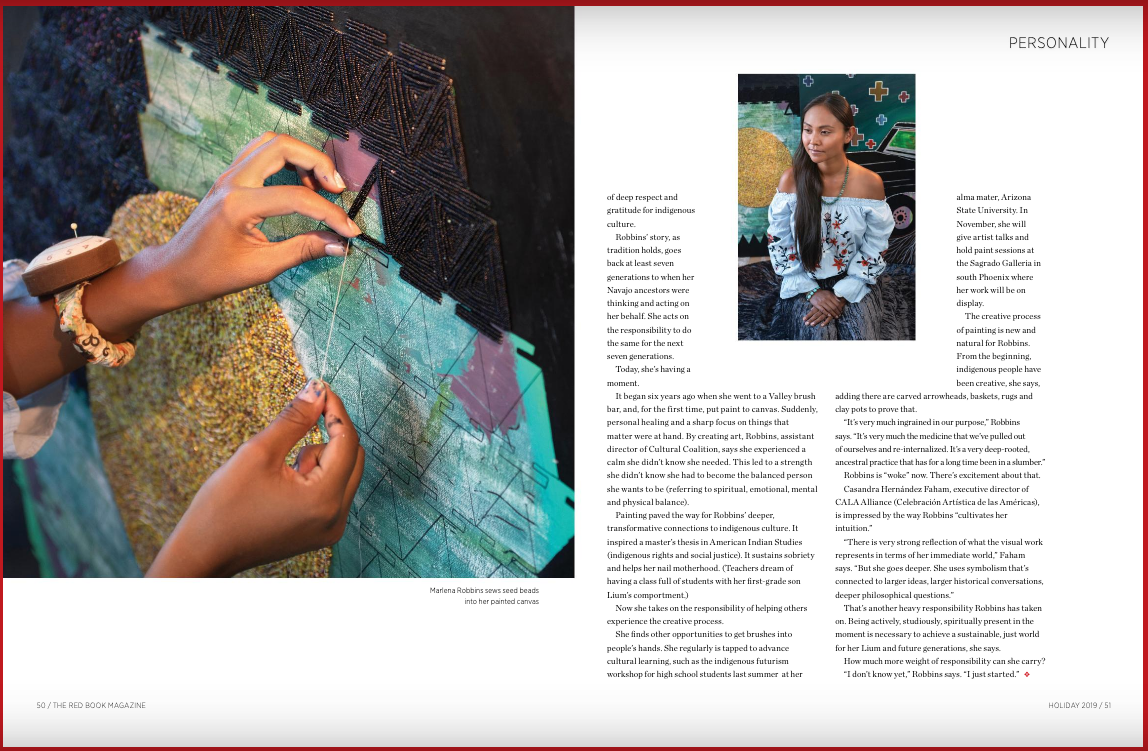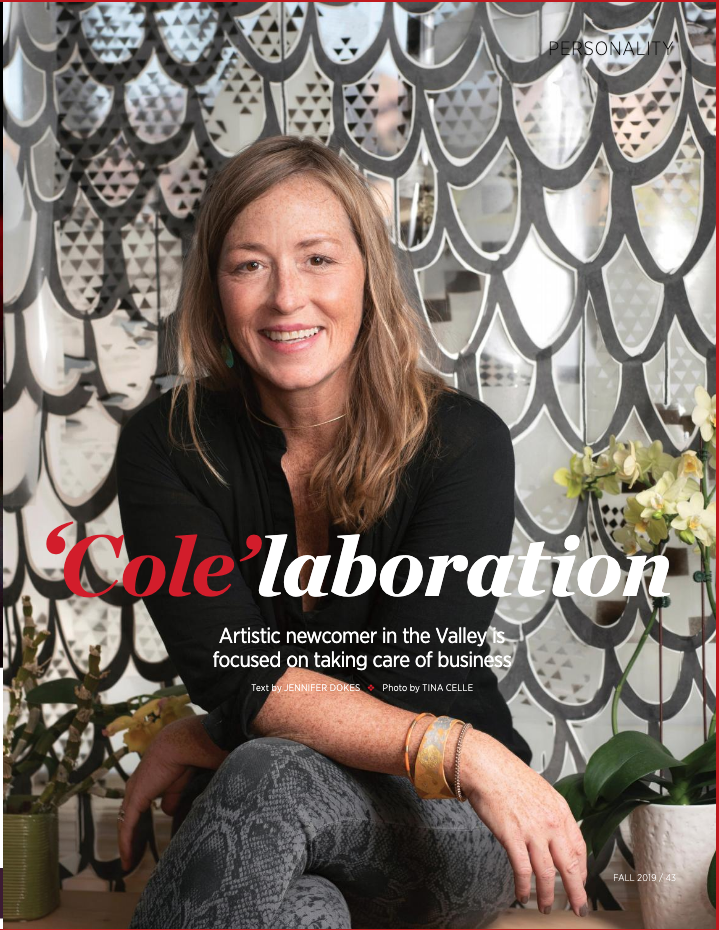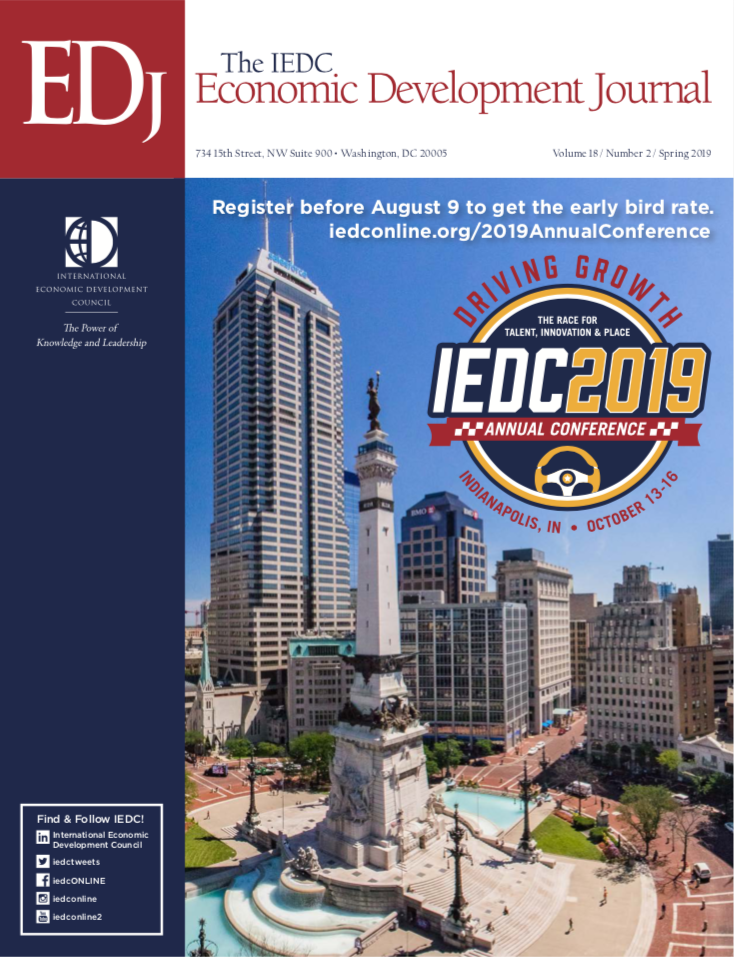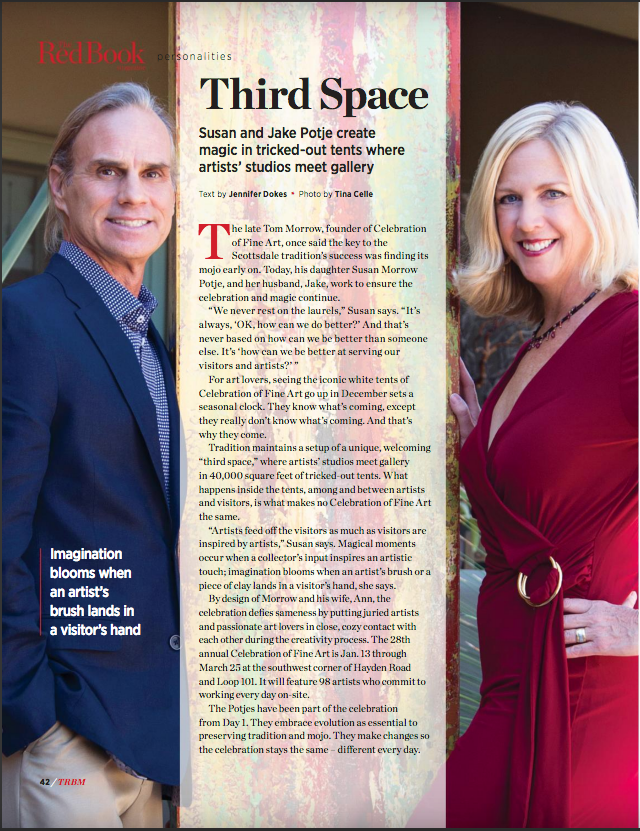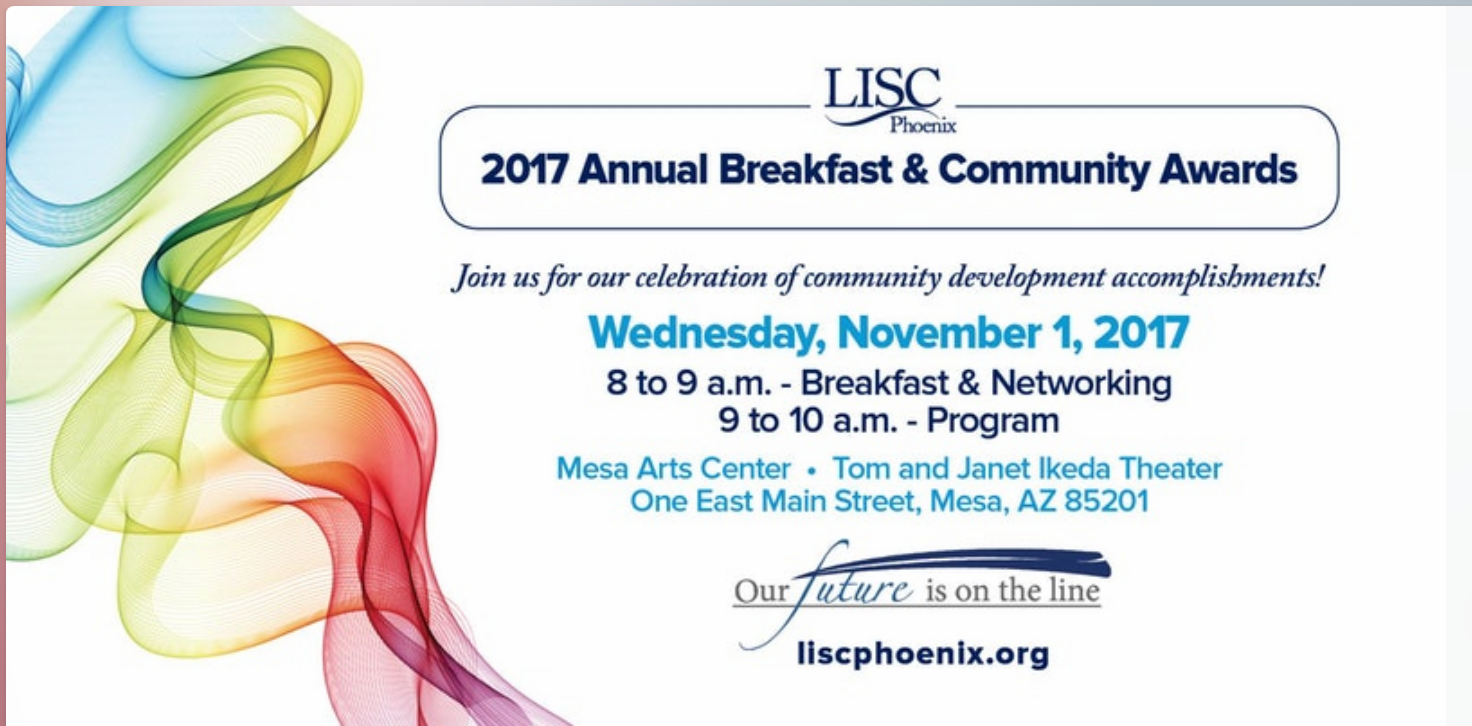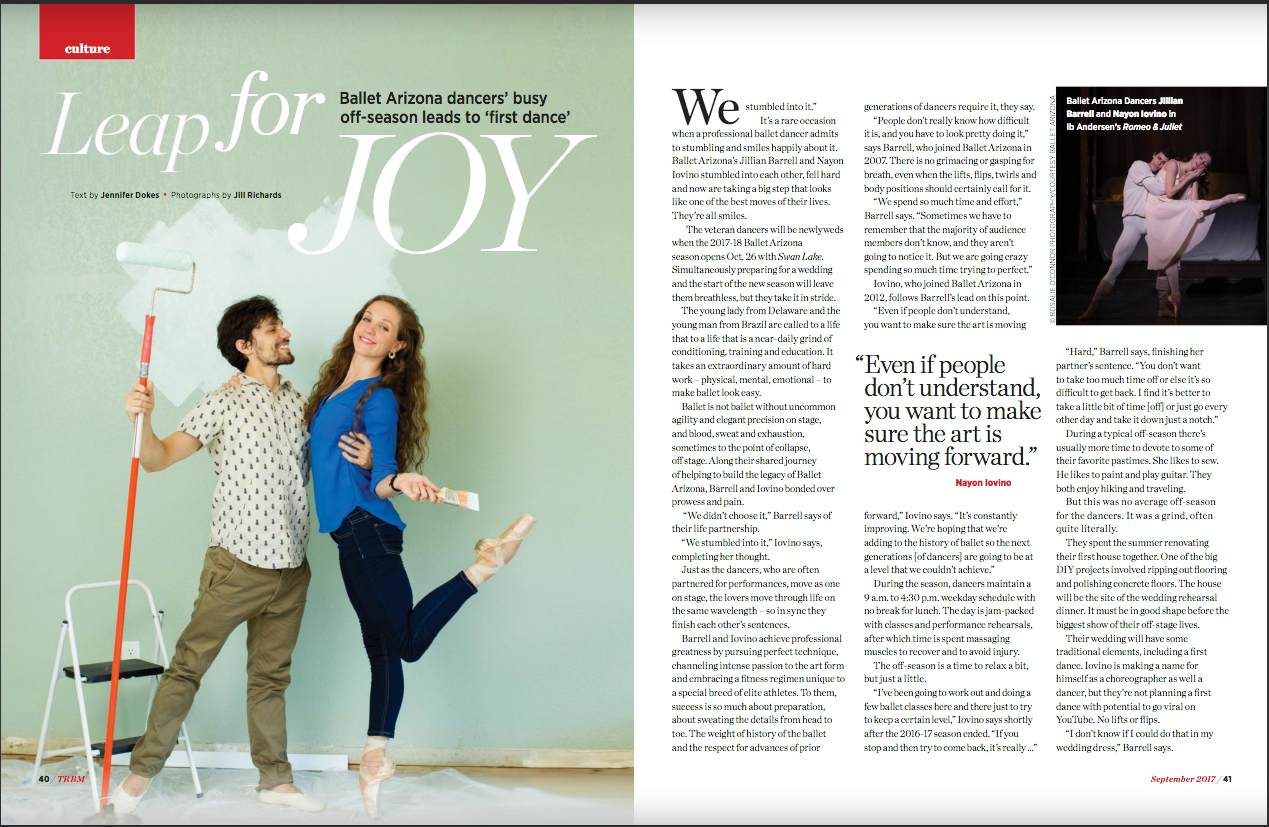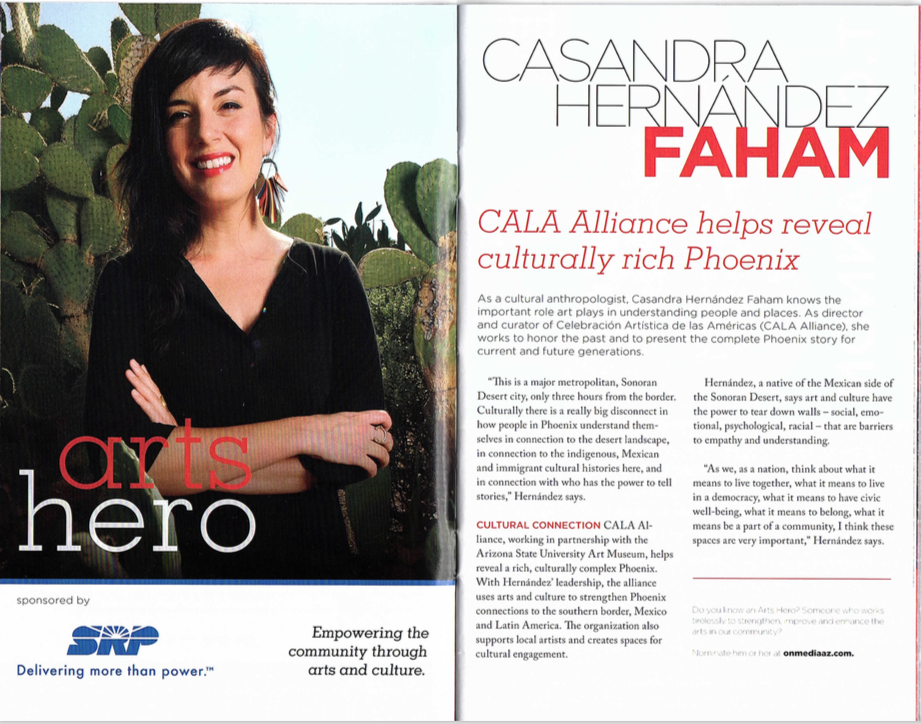Blog

Arts Heroes, 2022-23
Tucson Arts Heroes
JDD Specialties completed another season of “Arts Heroes” for ON Media. Arts heroes are the backbone of the arts and culture communities in Phoenix and Tucson.
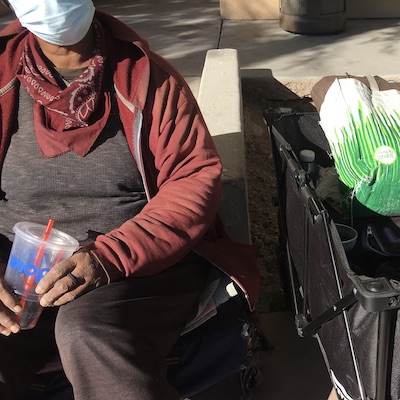
My neighbor
Meet Gwen, my neighbor who is homeless
I met Gwen, my neighbor who is homeless, in March of 2020, just as the COVID-19 lockdown began. My gym was closed, and so I started taking long walks for my physical, mental and emotional health.
I passed Gwen many times when I walked on Central Avenue before we started to have conversations. I posted them on my JDD Specialities Facebook page as part of my #20/20 series.
I’m continuing that conversation in this blog. The posts are in reverse chronological order.

ASU Edson College
Communication support
JDD Specialties provides monthly writing content to support the communication goals of the ASU Edson College of Nursing and Health Innovation.

Social Spin
Affordable housing solution
In 2021, Social Spin, a social-impact startup, established a nonprofit foundation to manage its charitable work and bought property at the northeast corner of 24th and Portland streets that will be the site of its major push into affordable housing development. LISC Phoenix appreciates the work.
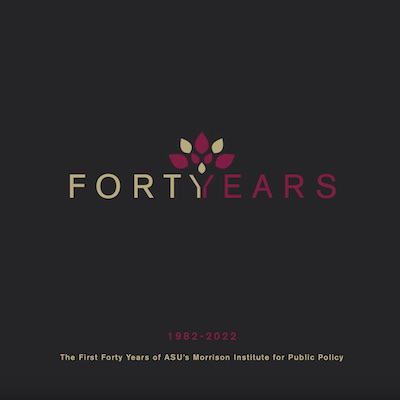
Morrison Institute
40th anniversary book
ASU Morrison Institute for Public Policy commissioned JDD Specialties LLC to write its 40-year history. The storytelling approach makes for fun, enlightening reading about the institute’s origins and survival.

Rare diseases
State of Black Arizona white paper
State of Black Arizona continues its push to raise awareness about rare diseases with this white paper that explores and encourages better policies and practices that reduce possibilities of misdiagnosis and address the unacceptable consequences of delayed or denied access to care.

Artist-in-residence
Creative placemaking
A feature article on Carolina Aranibar-Fernández explains how LISC Phoenix takes creative placemaking to next level with a new artist-in-residence position.
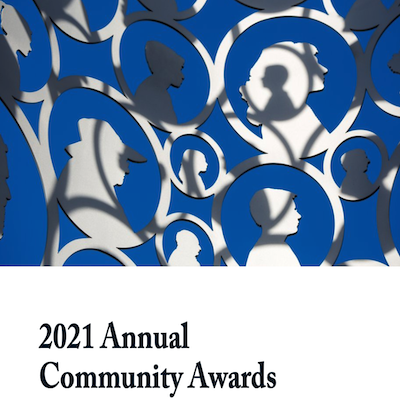
LISC PHX 2021
Exemplary community leaders
JDD Specialties continued an annual tradition of writing profiles of people and organizations that LISC Phoenix identifies as doing exemplary work in helping to build equitable communities. The 2021 honorees include:
UMOM’s Newsom Village, exemplary project: Newsom Village builds upon UMOM legacy of developing permanent affordable housing
Arouet Foundation’s Financial Opportunity Center, exemplary program development: Arouet Foundation rises to challenge of operating a LISC Financial Opportunity Center
Mesa Vice Mayor Jenn Duff, exemplary advocate: Jenn Duff’s continuous search for best ways for Mesa to develop starts with neighbors and local businesses
City Councilmember Robin Arredondo-Savage, exemplary advocate: Robin Arredondo-Savage brings small business, veteran background to Tempe community-development efforts
2020 Funds to Feed grantees and partners, exemplary community response: COVID-19-response Funds to Feed Grant inspired innovation, launched new era of grant-making
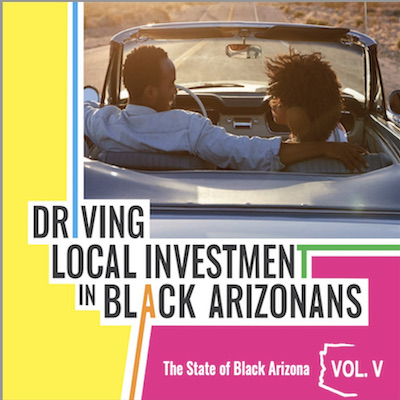
Black Arizona
State of Black Arizona
JDD Specialties provided editing, writing and consulting services to the State Black of Arizona for a series of reports released in 2021, including “Volume V: Driving Local Investment in Black Arizonans,” “Health and Well-Being of Black Girls and Women in Arizona” and the “State of Black Business.”

Lean On Me AZ
Strengthening Families to Prevent Child Adversity
All families experience stress at some point. Knowing that family stress is a first sign of child abuse and neglect, Prevent Child Abuse Arizona in April 2021 issued a community call to action and toolkit. It’s an effort to raise awareness about the factors that protect families from overwhelming stress, and provide tips, tools, and messages to help community members strengthen families in everyday ways.
The toolkit was developed after a series of virtual listening sessions in 2020 with stakeholders in the child welfare system, including families who are in the system and who identified as being at risk of having contact with the system.
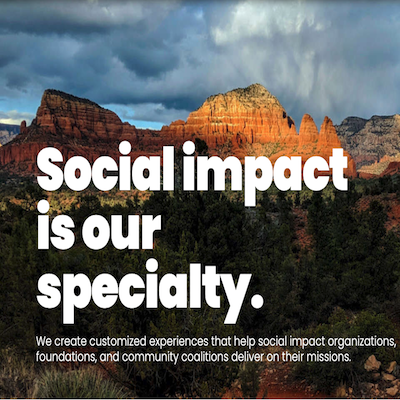
Beyond Strategy
The art of collaboration
Beyond Strategy Consulting is a multidisciplinary professional practice that uses the art of collaboration to deliver results and strengthen communities. Founder Cassies Hilpman Breecher tapped JDD Specialties to help write content for a revamped BSC website. JDD Specialties is also part of Cassie’s team of collaborators.
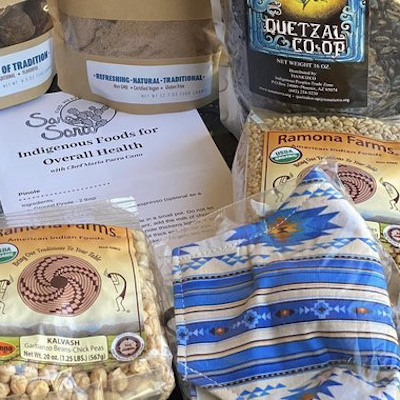
Funds to Feed
A new approach to grant-making
How does the Phoenix community development garden grow? With innovations like the Funds to Feed grant administered by LISC Phoenix. Here’s how a city of Phoenix CARES Act story begins:
COVID-19’s devastating socioeconomic impact on underserved communities already struggling in food deserts required a crisis response with as many helping hands as possible doing the hard work of ensuring individuals and families avoid hunger.
Or maybe what it took was the community development version of a green thumb, a grower’s heart and a commitment to plow new ground in grant-making.
(Photo by Cihuapactli Collective)
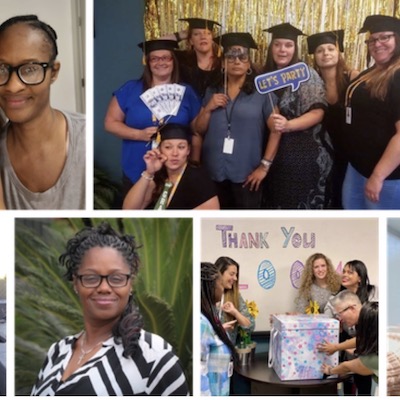
Returning citizens
Financial Opportunity Center
With the support of LISC Phoenix, the Arouet Foundation helps women newly released from Perryville Prison navigate complex systems that pose barriers and obstacles to their success. The Financial Opportunity Center, a special initiative of LISC, is a crucial part of Arouet’s support system to formerly incarcerated women.

COVID-19 & racism
ASU VP navigates 2 pandemics
Colleen Jennings-Roggensack, ASU vice president of cultural affairs, is a force for the arts on the regional and national scenes. In 2020, her work centered on two pandemics: COVID-19 and racism. The Red Book Magazine featured her in its holiday issue.
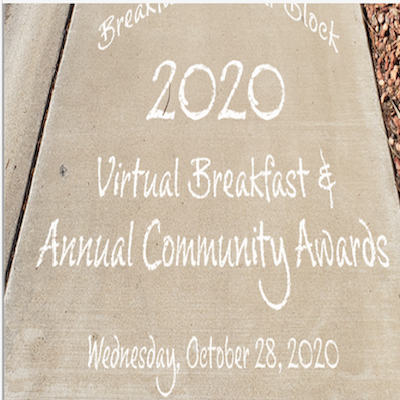
LISC PHX awards
LISC Phoenix honors exemplary partners
LISC Phoenix recognizes people or organizations that have helped it in its work to build equitable communities. JDD Specialties, as it has in years past, wrote profiles of the 2020 honorees.
Exemplary Collaborative, Arizona Home Matters Fund: “New Arizona affordable housing fund built on solid foundation of collaboration.”
Exemplary Project, Urban Living on Fillmore by Native American Connections: “Urban Living on Fillmore’s form follows Native American Connections’ functions.”
Exemplary Partner, U.S. Bank: “U.S. Bank COVID-19 relief funds follow a trail of trust, partnership to transit corridor microbusinesses.”
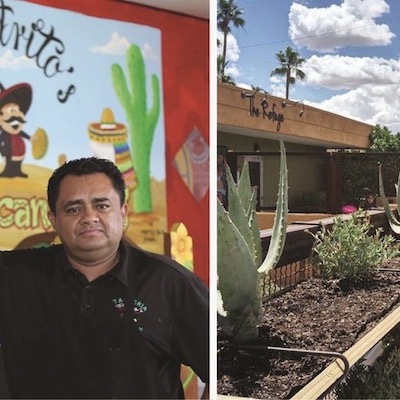
Pandemic relief
LISC Phoenix facilitates COVID-19 aid
The unprecedented economic impact of COVID-19 took a huge toll on small businesses. LISC Phoenix is in the thick of helping those businesses, especially those owned by women and people of color, get through the crisis.
Here are some of the stories that capture some of LISC’s equitable economic development work:
“2 Beloved Small Restaurants receive Verizon LISC Small Business Recovery Fund Grants”
“Banking on community trust and relationships to secure equitable access to PPP”

Arts Heroes, 2019-20
Heroic efforts for the arts
For the third consecutive year, JDD Specialties wrote all profiles for the ON Media Arts Hero program. Arts heroes are honored each month in theater programs for venues in Phoenix and Tucson.
The 2019-20 profiles of heroes are available in digital booklets:

Piper Trust
Promoting special initiatives
JDD Specialties is a consultant and writer for Virginia G. Piper Charitable Trust, one of the nation’s top-100 foundations. The trust awards annually about $23 million in grants to nonprofits in Maricopa County.
During the COVID-19 pandemic, JDD Specialties helped the trust communicate a multifaceted, rapid response of strategic emergency grants.
In August 2015, JDD Specialties helped the trust and the Arizona Commission on the Arts with a joint announcement about a three-year grant to launch the AZ Creative Aging initiative, which a national leader of the creative aging movement called “brilliant.”
JDD Specialties wrote the extended profile on Russ Perlich, the 2015 Piper Trust Encore Career Prize awardee and the brief profiles of 2016 Encore Prizes for Exceptional Organizations.
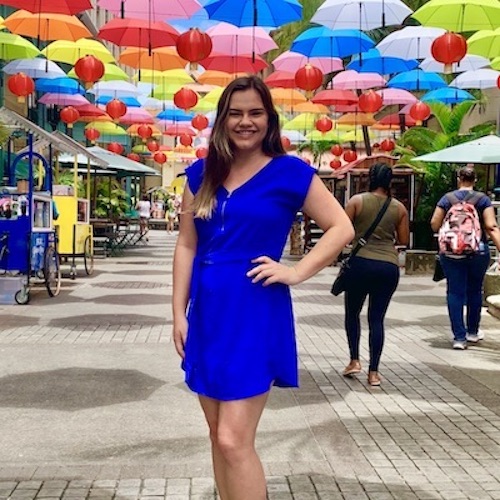
Bianca Buliga
Alumni Spotlight
Bianca Buliga grew up thinking ‘business’ was a dirty word and that nothing good comes of its practice. Her early perceptions seemed diametrically opposed to her life goal of making positive, societal change. The 2017 graduate of the ASU Thunderbird School of Global Management knows better now. In April 2020, She was featured in the school’s Alumni Spotlight.

Gbemi Abudu
Alumni Spotlight
Gbemi Abudu’s ambition to lead a fulfilled life could very well change the worlds of young women and transform markets in Africa. The ASU Thunderbird School of Global Management Alumni Spotlight was on her in April.

Knowledge Network
Showcasing Thunderbird talent
The ASU Thunderbird School of Global Management Knowledge Network website highlights the impressive work and expertise of faculty. Here are examples of some of the work JDD Specialties added to the website:

ASU MLFTC
Principled Innovation
JDD Specialties has contributed editing and writing technical assistance to the ASU Mary Lou Fulton Teachers College’s principled innovation initiative since 2018. That work continues in 2020 with heavy support of a variety of storytelling projects that accelerate awareness and understanding of principled innovation.
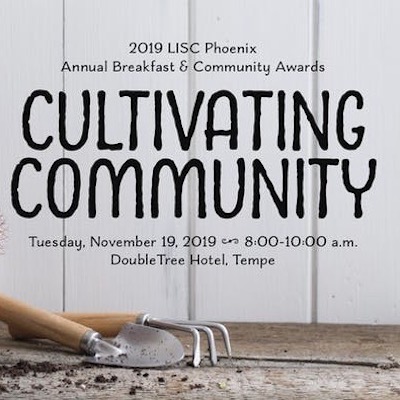
LISC Phoenix
Annual breakfast celebration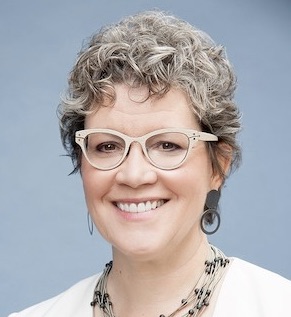
This wrap-up of a LISC Phoenix event that has become a major celebration of community development work in Arizona featured LISC COO Annie Donovan. The national expert in community development and impact investing, shared five things to focus on when addressing structural factors that create and perpetuate poverty in our communities.

Artistic intellectual
Painting with beads
This personality profile about Marlena Robbins is about how she puts all of herself into her work. And there is so much to the person that she is. She is an artist with a keen intellect and a biding respect for indigenous culture. (The article appeared in the holiday 2019 issue of The Red Book magazine.
(Photos by Tina Celle.)

Personality profile
Welcome, Cece Cole
The Red Book magazine wanted a profile on an artistic newcomer who has quickly made a name for herself in the Valley. She brought a lot with her in her move from Louisiana to Arizona.
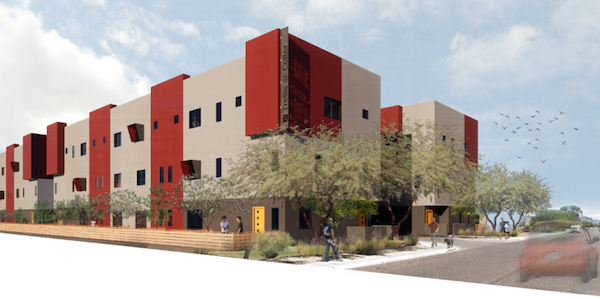
Trellis branches out with new townhouse project
(Note: This article is part of “Communities on the Line,” a LISC Phoenix series on transit-oriented development in the Valley.)  A ¾-acre residential lot in the West Camelback Corridor is long past its prime as a single-family-home property. As fate and determination have it, that’s a very good thing for 20 future homeowners and a neighborhood experiencing revitalization spurred by light rail.
A ¾-acre residential lot in the West Camelback Corridor is long past its prime as a single-family-home property. As fate and determination have it, that’s a very good thing for 20 future homeowners and a neighborhood experiencing revitalization spurred by light rail.
Trellis broke ground in May on a townhouse development in central Phoenix at 1617 W. Colter St. Trellis @ Colter is a rare, unique new home ownership opportunity within the Valley Metro light-rail corridor where thousands of units of multifamily rental housing have sprung up along the 28-mile route in recent years, including projects underway to the south and west of the townhomes.
But for Trellis, which has a long history in single-family home lending and building, it didn’t make sense to put three or four small units on the lot near the 19th Avenue and Camelback Road light-rail station. Trellis delved into density options for home ownership because of the lot’s proximity to light rail, its central city location and because of all the commercial activity occurring on Camelback Road. Continue reading
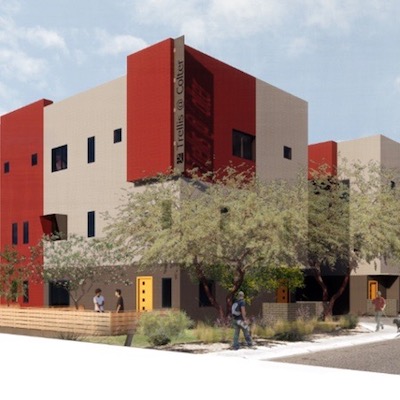
Phoenix TOD
Trellis @ Colter
Progress on the Valley’s affordable home ownership crisis requires thinking and acting differently. Trellis and its partners, including LISC Phoenix, are doing just that. Here’s an article about a transit-oriented development project that offers a rare Phoenix home-ownership opportunity near the light-rail line.

IEDC article
IEDC Economic Development Journal
JDD Specialties helped meet the quick-turnaround challenge of producing a double-byline journal article for an International Economic Development Council publication. In about 10 days, a barebones outline about LISC-inspired inclusive prosperity efforts in Indianapolis became a crisp, readable 2,500-word article co-authored by Elizabeth Demetriou, national director for economic development at LISC, and Emily Scott, economic development program officer at LISC Indianapolis. Four years of writing articles for LISC Phoenix helped prepare JDD Specialties for this project.

Micronesian seaweed farm is fertile ground for T-bird’s humanitarian goals
Editor’s note: This article appeared first appeared in the ASU Thunderbird School of Global Management Knowledge Network e-newsletter.
Ask Solomon Frank about his typical workday after launching a start-up on a small tropical isle and he will talk about rolling out of a hammock for a day that includes fishing and swimming. Fishing is for sustenance; swimming is how he gets to work.
There is no checking email or seeing what the stock markets are doing because there is no Internet on the island. But pigs and chickens do get his and his co-workers’ daily attention; so do some food crops.
There’s also a cash crop to tend: seaweed. That’s where he gets down to the business of improving lives through economic development.

Castelazo Content
Part of the team
JDD Specialties helps Castelazo Content achieve its goals by delivering content for one of its clients, the Thunderbird School of Global Management at Arizona State University.

Alumni spotlight
Thunderbird School of Global Management
Castelazo Content has tapped JDD Specialties to write a series of articles about notable alumni of its client Thunderbird School of Global Management.
April 2020, Bianca Buliga, marketing manager
April 2020: Gbemi Abudu, managing partner, BMGA Enterprise LTD
August 2019: Solomon Frank, Outer Atoll Resources
July 2019: Wolfgang Koester, chief evangelist, Kyriba
June 2019: Kim Williams, Warner Bros. executive

Outstanding graduates
ASU Watts College
ASU Watts College of Public Service and Community Solutions assigned to me a project that made my heart sing. I wrote profiles of the six outstanding graduates for Spring semester 2019. Jennifer Harrison, Kelly Walsh, Josh Loescher, Aly Perkins, Katharine Leigh Brown and Joanna Williams are phenomenal students and exceptional human beings.
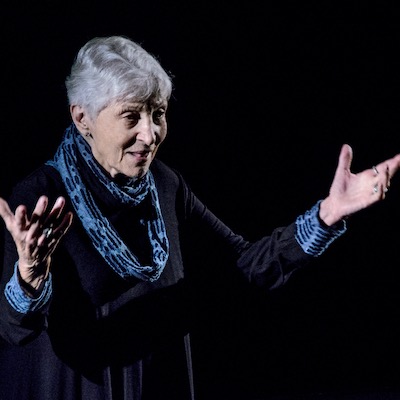
2018-19 Phx Arts Heroes
(Photo credit: Howard Paley)
Leaving legacies
ON Media celebrated the third year of its Arts Hero program in Phoenix. (It conducts the same program in Tucson.) This has become one of my favorite annual projects because of all the talented and extraordinarily decent people I meet.
Fran Cohen Smith, a champion of modern dance in Arizona and a driving force behind Wolf Trap, an arts-integrated, early-child-learning program, was one of my favorite interviews of the 2018-19 season. We laughed and talked for hours at First Draft. Her profile appeared in March programs at Valley venues, about two months before she died at 87. Fran was seen dancing on stage with children just weeks before she died.
(Photo credit: Howard Paley)

2018-19 Tucson Arts Heroes
Heart and soul
ON Media honored another season of Arts Heroes in Tucson. It’s always a pleasure to write profiles of the honorees. Soleste Lupu and Joey Rodgers, owners of Dancing in the Streets AZ, were among my favorites for the 2018-19 season. The husband-and-wife team teaches classical ballet in South Tucson.

Project DreamCatcher
Empowering Native American women
The third cohort of Native American businesswomen completed the Project DreamCatcher program in May 2019. Project DreamCatcher is funded by Freeport-McMoRan and implemented by the Thunderbird School of Global Management. The article about the program and its commencement ceremony was posted to the Thunderbird Knowledge Network website, which receives content support from Castelazo Content.
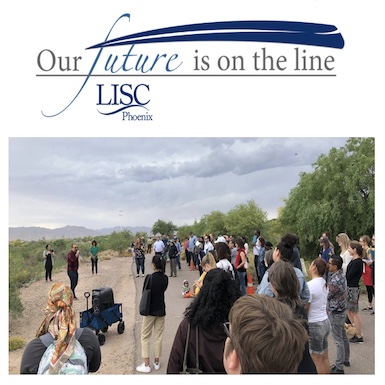
Winds of change in community development
Editor’s note: This article was written for LISC Phoenix and is posted on its website.
On a recent spring day in south Phoenix, nature served up a chilly wind and some sprinkles of rain as a reminder of its power to affect how people feel. A few dozen desert dwellers who had gathered at the Rio Salado Recreation Area for a conversation about the socioeconomic importance of place shivered and tried to brace themselves.
It was an appropriate metaphor for a day of reflection about the powerful, unnatural force of displacement. It’s chilling. Community development institutions and organizers, in Phoenix and throughout the United States, are hunkering down in their fight against it.
Displacement is the forced movement of people from places where they have deep connection to the land and typically where there is cultural relevance. When it moves low-income households out of their neighborhoods to make way for housing that only higher-income renters and buyers can afford, displacement ushers in gentrification.
David Greenberg, national director of research for LISC, sees the need for well-organized counter movements to displacement, particularly in the area of affordable housing.
“Through organizing, it’s often possible to expand upon what we think might otherwise be possible to support the affordable housing movement more broadly and bring together people to policy to shape place,” Greenberg said.
Continue reading
Anti-displacement
Winds of change
LISC Phoenix and its community development partners sponsored a forum on anti-displacement strategies. I wrote the article that wrapped up the half-day session on April 16 and a tour later that at the Rio Salado Recreation Area in South Phoenix.
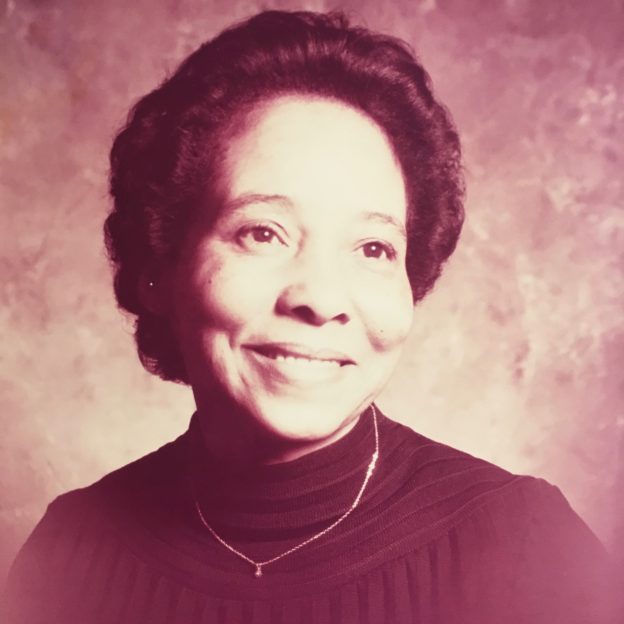
Time, love do amazing things
One year already since my mom died. Time has done its thing, managing to be trippy and relative at once.
How can a year have passed when I remember that day in far greater detail than I remember yesterday? And how could it be that ONLY a year has passed when I have learned and lived so much?
My dear friend, who lost her mom less than a week after I lost mine, says she has aged in the last year. It’s a physical thing for her. For me, it’s more mental and emotional. I have matured at a rate that I haven’t experienced since Dad died nearly 19 years ago. The change back then, I’ve always felt, set me up for success in middle age. If old age is in my future, I think I’m better able to handle it now. Time did that and I’m grateful.
Continue reading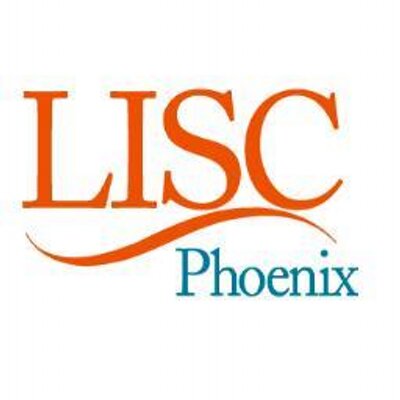
People-first development
Strong Towns’ guru speaks
Editor’s note: Charles Marohn, founder and president of Strong Towns, shared thoughts about Phoenix-area development during a 2018 visit. This article was written for LISC Phoenix, one of the sponsors of Marohn’s visit.
“Cities have the capability of providing something for everybody, only because, and only when, they are created by everybody.” — Jane Jacobs, “The Death and Life of Great American Cities”
The definition of insanity, the adage goes, is doing the same thing over and over again but expecting different results. Charles Marohn, founder and president of Strong Towns, argues that current development patterns force people, especially those in the Southwest, to live some variation of Crazytown, USA.
The horizontal expansion development patterns we see today make life unnecessarily difficult for some residents and are not sustainable long-term, Marohn said. Cities and towns can’t afford the post-World War II, automobile-centric, sprawl development pattern seen coast to coast, he said.
“You’re in a dysfunctional system designed to do a dysfunctional thing over and over again,” Marohn said.
“Phoenix, the state of Arizona, a lot of the Southwest, is designed to grow in a very certain, specific way. … Not only is the landscape perfectly adapted to that, but the structures that we’ve created — socially, politically, culturally, economically — are perfectly aligned to do that,” he said.
Continue reading
Valor on Eighth marshals resources, inspires hope
A public-private partnership with layers of leveraged resources produced huge community impact in the form and function of Valor on Eighth, an affordable housing complex with a special focus on veterans.
This is part of the “Communities on the Line” series that I write for LISC Phoenix.
Honor, dignity and opportunity took up residence at Valor on Eighth when the Tempe apartment community designed and built for under-served veterans opened in January. Hope and determination have made themselves comfortable there, too.
With Valor, housing and veterans’ advocates scored a victory in the ongoing battle to create decent, affordable living environments for those who have served our country. Valor is the only affordable housing apartment community in Arizona that puts the needs of veterans with families front and center.

When the shoe is on the other foot
I have been asking questions for more than 30 years. I know a good answer when I hear one. Now I know what it’s like to be on the other end of that process.
VoyagePhoenix was kind of enough to share my story of founding JDD Specialties. It was a fun Q&A and an honor to be included in the online magazine’s popular “Phoenix’s Most Inspiring Stories” feature.
Here’s a link to the article posted on Oct. 19: Meet Jennifer Dokes of JDD Specialties
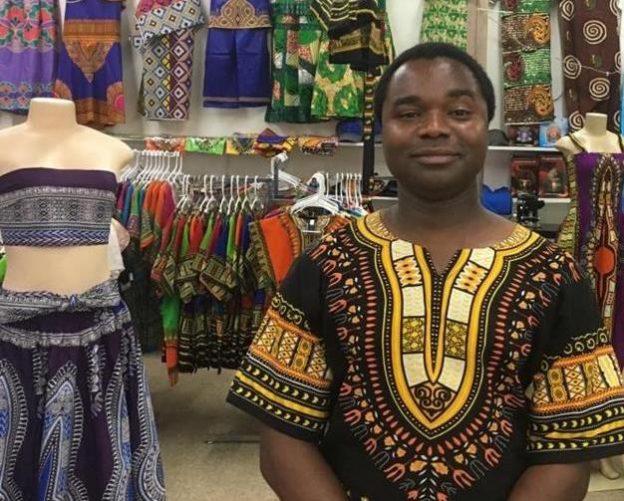
LISC, Kiva help local shop owners gain critical access to capital
(Editor’s note: This article first appeared on the LISC Phoenix website.)
Perodin Bideri, a west Phoenix shop owner who was raised in refugee camps in Tanzania, and Christy Moore, a veteran Valley nonprofit executive who is on a mission to disrupt the landromat industry, are in the same boat.
Both are seeing things — opportunities, specifically. Both have a brand of ambition that’s engaging and inspiring; it invites participation.
And both are navigating waves of success that often come with access to capital made possible through a partnership with nonprofits LISC and Kiva, an online crowdfunding platform. For as little as $25, a lender can join a fund that allows borrowers to receive loans of up to $10,000.
Access to capital is a major hurdle for emerging small-business owners. They don’t qualify for credit from traditional lenders. If they do secure loans, they come with high interest rates and fees.
With a Kiva loan, borrowers pay zero interest and no fees. That got the attention of Bideri, owner of B&R African Styles.
“When I was introduced to Kiva, it was a great opportunity to open doors that grow my business,” Bideri said. “To get a loan with zero interest? I was in.”
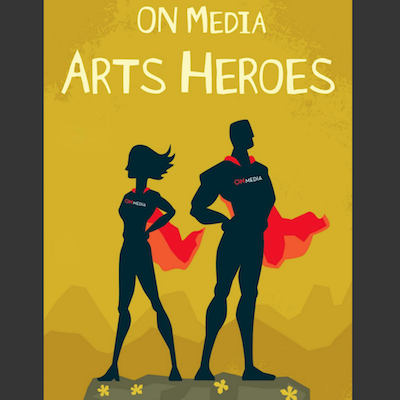
Arts Heroes, 2017-18
Heroic efforts for the arts
JDD Specialties wrote all profiles for the second annual ON Media Arts Heroes program. ON Media selected 17 arts heroes in Phoenix and southern Arizona. Their profiles appeared monthly in theater programs during the 2017-18 arts season.

A second chance for Miracle Mile on McDowell Road
Editor’s note: Miracle Mile on McDowell is the latest entry in the LISC Phoenix “Communities on the Line” series. Nearly seven decades ago, shop owners frustrated by the challenges of conducting business in downtown Phoenix went looking for the next big thing in local commerce. They found it on McDowell Road, which back then was on the outskirts of town. McDowell Road quickly became a mid-century commercially vibrant, pedestrian-friendly place to be. A stretch of east McDowell was so thick with business activity it became known as the “Miracle Mile.” Fortunes changed just as quickly for Miracle Mile. By the late 1950s, the hot spot was snuffed out by the next big thing — Park Central, Arizona’s first shopping mall. 
Decades of neglect and abandonment and policy decisions turned McDowell Road into a major route for commuters rather than a destination location or a place with goods and services for neighbors. McDowell Road is getting a second chance. In contemporary terms that signal next-big-thing status — revitalization, diversity, inclusion, small-business investment, creative placemaking, connected neighborhoods — the east McDowell Road commercial corridor from 7th Street to Highway 51 is heating up again. The area has amassed an array of ethnic restaurants and markets (Salvadoran, Ethiopian, Morrocan, Mexican) and is becoming a hub for immigrant and refugee entrepreneurship. Other small business also are finding success in the corridor.
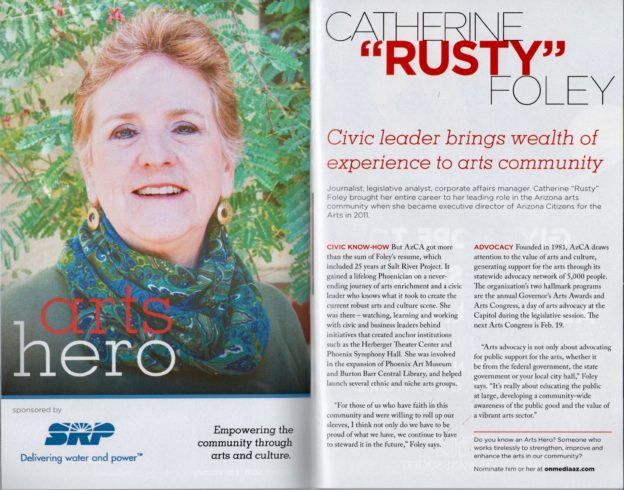
Rusty Foley is an ‘Arts Hero’ and a bad chick
I’ve had the pleasure of interviewing nearly two dozen people in the Valley and southern Arizona for the On Media Publications Arts Hero project. It’s been a labor of love during the past few months because I’ve met some of the coolest people doing amazing, righteous things for our communities.
Most of the honorees are new to me. But Rusty Foley, the Phoenix Arts Hero for January, is very familiar. She built a legacy long before she put her talent and energy into Arizona Citizens for the Arts. I knew her first as a very good journalist and then as a community mover-shaker while at SRP.
You can call Rusty a hero. I call her a bad chick. Not many people hold that high status in my book.
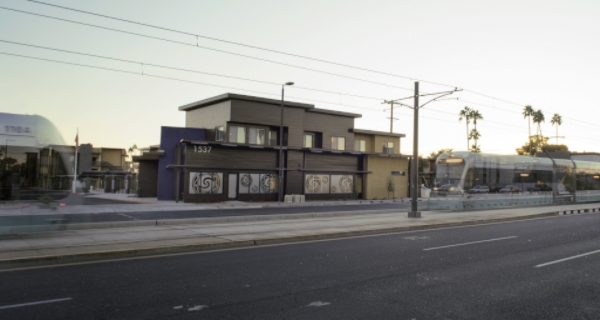
Camelback Pointe combines Housing First model with transit-oriented development
(This article is part of a LISC Phoenix series, “Communities on the LIne.” Photo by Mark Lipczynski Photography.)
For city, state, and federal housing leaders, Camelback Pointe is part of a regional effort to end chronic homelessness. The 54-unit apartment complex has a single-person focus and on-site case managers and resident service specialists to address an array of needs.
For developer Native American Connections (NAC), the $13 million complex in the West Camelback Road commercial corridor represents an evolution of its groundbreaking permanent supportive housing work, combining the Housing First service model with transit-oriented development principles.
For urban renewal advocates, Camelback Pointe, a LEED Platinum certified development, is an example of converting a nuisance property into an architecturally clean community asset. It replaces an abandoned fast food restaurant site that had become a problem property, and now has an engaging, neighborhood-focused owner (NAC) who will have a 24/7 presence at the secure-community site.
But for its new residents, Camelback Pointe is simply and powerfully one thing: Home.

Communities on the Line
A new series for LISC Phoenix
In 2015, LISC Phoenix added an economic development component to its strategic plan to revitalize neighborhoods. In 2016, the nonprofit identified four corridors along the Valley Metro light rail line that could benefit from LISC-style comprehensive economic development efforts. In 2017, LISC Phoenix, with the help of JDD Specialties, will highlight the challenges, opportunities and successes of those corridors through a series called, Communities on the Line.
Valor on Eighth marshals resources, inspires hope for veterans
LISC and Kiva help local shop owners gain critical access to capital
Affordable loan opportunities growing from LISC partners
LISC push on economic development strikes a chord
Long-awaited redevelopment heating up in Apache Blvd. corridor
Creative economic development efforts grow success in downtown Mesa
Bazaar days make a world of difference at 19th Ave. and Camelback
Mesa Artspace Lofts will have good bones
‘Happy City’ author urges push for safe, healthy transportation corridors
With new clinic, MPHC no longer hidden treasure in Tempe
There’s more than meets the eye on West Camelback Road
Visitor center enriches public understanding of indigenous people
NAC combines power of housing first and TOD at Camelback Pointe
A second chance for McDowell Road’s Miracle Mile

‘Life is Sweet’
LISC CEO Jones gets to heart of matters
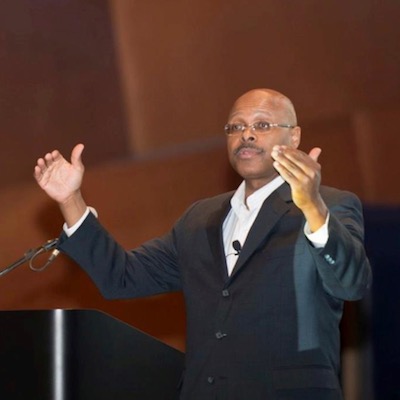 LISC and its partners are experts in the business of comprehensive economic development. Maurice Jones, president and CEO of LISC, said the success stories in the Phoenix area and throughout the nation leave no doubt about that.
LISC and its partners are experts in the business of comprehensive economic development. Maurice Jones, president and CEO of LISC, said the success stories in the Phoenix area and throughout the nation leave no doubt about that.
They’ve done the heavy lifting of revitalizing neighborhoods and forging healthy, sustainable communities. They’ve flashed genius in leveraging tools and resources for initiatives that create place, spur small-business activity and strengthen the local workforce.
But on Nov. 1, Jones used the occasion of the LISC Phoenix annual celebration of exemplary work in community development to talk about failure — specifically the effort needed to push toward a higher-degree of success with deeper meaning. Don’t lose sight of humanity in community development work, Jones said in urging leaders to look for the faces of loved ones in serving people in need.
“Sometimes in our work we get caught up in what’s the capital stack that we need, where does philanthropy play, where do banks play, where does local government play, where do we play,” Jones said. “The real issue is do I see the face of my daughter in that homeless guy. …The most important muscle in the work that we’re talking about now is the heart. It’s not the other stuff. We know how to do it. It’s whether we have the heart to do it.”
Jones was the featured guest at the 2017 LISC Phoenix annual breakfast at the Mesa Arts Center. More than 200 attended the celebration that honored Mountain Park Health Center – Tempe Clinic as an exemplary project; Nordstrom Bank as an exemplary partner and Phoenix Indian School Visitor Center as an exemplary collaborative.
Mesa Mayor John Giles expressed gratitude for LISC Phoenix’s work, particularly in improving the affordable housing condition in downtown Mesa and growing a strong arts community.
“Thank you for your support,” Giles said to LISC. “Thank you for helping us create places in our communities that are the hub of people and business and in the way we interject new economy, sometimes in old buildings. It’s exactly what my community needs and each of the communities that you serve so well.”
Jones said LISC has a particular interest in the Phoenix area for building more commercial corridors, helping individuals get prepared for the work that exists in the region, facilitating entrepreneur and small-business endeavors and “really investing in this robust arts community here, leveraging it for both creating place but also creating jobs.”
In addition to urging a recommitment to moving people’s hearts to maintain momentum on effective community development work, Jones said it’s important to have a solid partnerships across many sectors that can confidently navigate the ups and downs of pursuing strategic goals.
“For the work we do, the most important thing is heart and high-functioning team,” Jones said. “That combination gets us across the finish line every time.”

LISC CEO’s message
Maurice Jones gets to the heart of matters
The president and CEO of LISC, a champion of inclusive economic development, was the featured guest at the LISC Phoenix annual breakfast and awards ceremony on Nov. 1.
“Sometimes in our work we get caught up in what’s the capital stack that we need, where does philanthropy play, where do banks play, where does local government play, where do we play,” Maurice Jones said. “The real issue is do I see the face of my daughter in that homeless guy. …The most important muscle in the work that we’re talking about now is the heart. It’s not the other stuff. We know how to do it. It’s whether we have the heart to do it.”
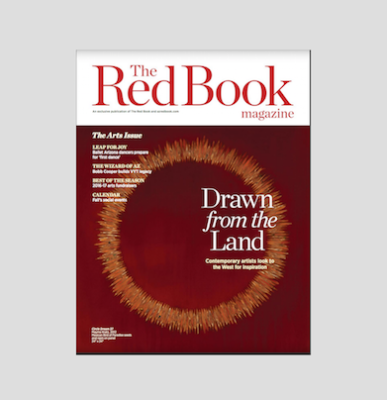
The Red Book Magazine
‘Leap for Joy’
The Red Book, a resource for those involved in the social and philanthropic community, and azredbook.com launched a new magazine. The Red Book Magazine will have a single focus. The premier issue published in September 2017 focused on the arts. JDD Specialties was honored to write a feature, “Leap for Joy,” for the first issue of The Red Book Magazine

Don’t sell the flag and the values it represents cheap

ON Media
Arts Hero project
On Media hired JDD Specialties to write profiles for its Arts Hero project. The 17 profiles will appear in the 2017-18 theater programs published for Phoenix and Tucson performances.
September Phoenix Arts Hero
Coffee shops make a small world turn round
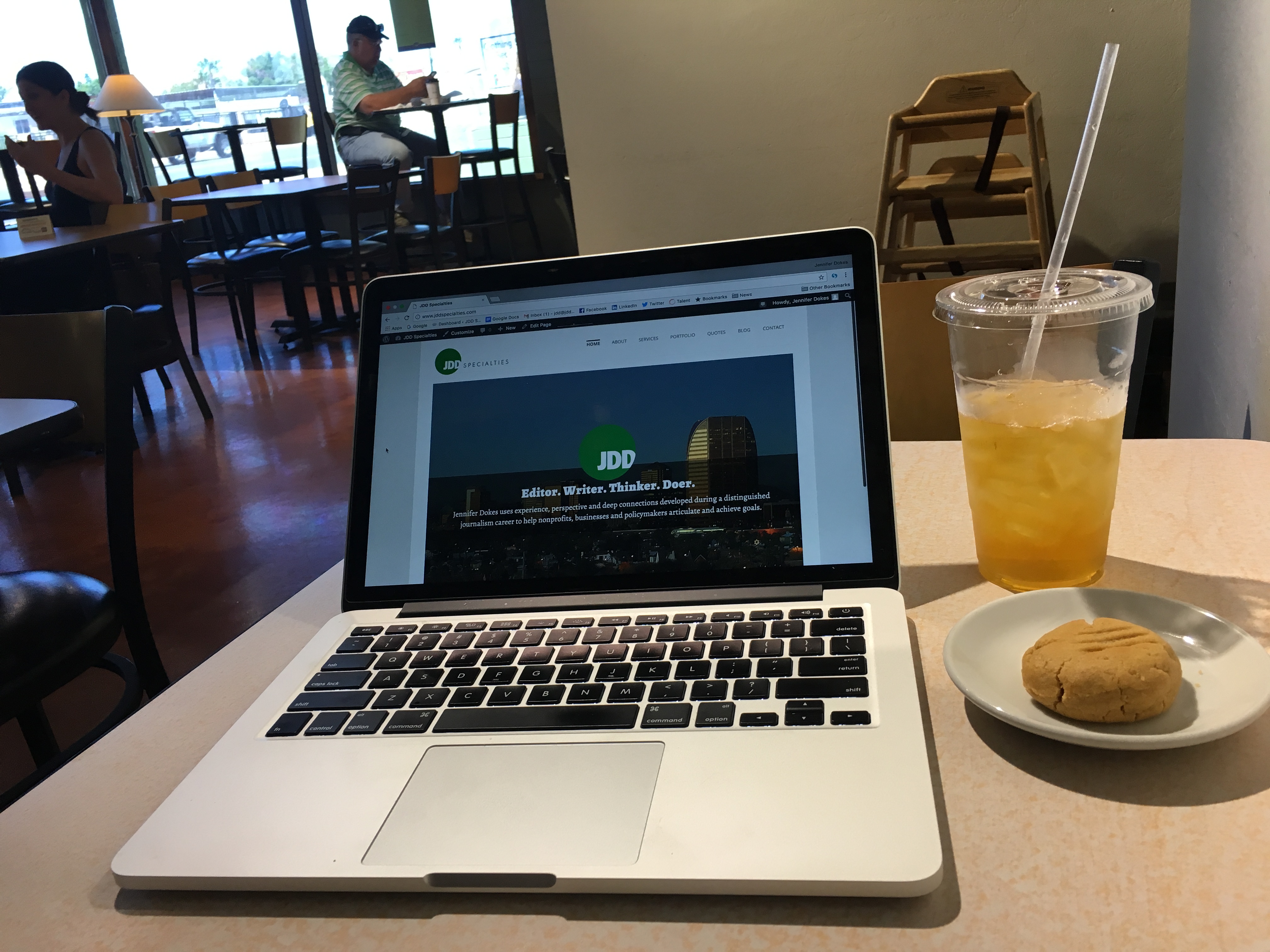 Coffee shops are an integral part of a city’s connective tissue. I like their place in my world. Highlights of just the past few days:
Coffee shops are an integral part of a city’s connective tissue. I like their place in my world. Highlights of just the past few days:
Giant Coffee: The mayor is there. He asks me if I miss daily journalism. (That’s an emphatic, “NO!”) I tell him it’s good to see him out and about. He says it’s better than staying inside Phoenix City Hall. He dashes off, in that trademark way he comes and goes. He left me me wondering where his next political home will be, but not in a political junkie way. It was more personal.
The Refuge: That’s the site of a business meeting with someone who is the wind beneath powerful wings. There’s lots to discuss about a long-term project that could revolutionize the way we help people in need, how we make our communities stronger. But first things first: We take our time catching up on family news. She’s wearing a sharp, black dress, heels and pearls. I’m in a shirt, jeans and flats. We’re both in appropriate work attire to handle the business before us. That’s just how we roll in Phoenix.
First Draft: Even when I’m not there, I’m there. While at the gym, I get a text from a dynamo who I’m counting on to win the most interesting Arizona legislative race in 2018. She’s at Changing Hands bookstore where we’ve bumped into each other a couple of times when I’m working out of the adjacent First Draft. It’s to the point where she expects to see me every time she’s at the bookstore. I like that connection.
None of this happens without the excuse to drink coffee and tea and to be in interesting places. Coffee shops make you feel like the world is small and intimate, but they are also places that help you keep the big picture in sharp focus. There’s a certain magic in all of that.

Community development
A focus on urban living
JDD Specialties has expertise writing about community development, urban design and sustainable communities. An article for LISC Phoenix that recaps “Happy City” author Charles Montgomery’s May 2017 visit to the Valley of the Sun is an example of that work.
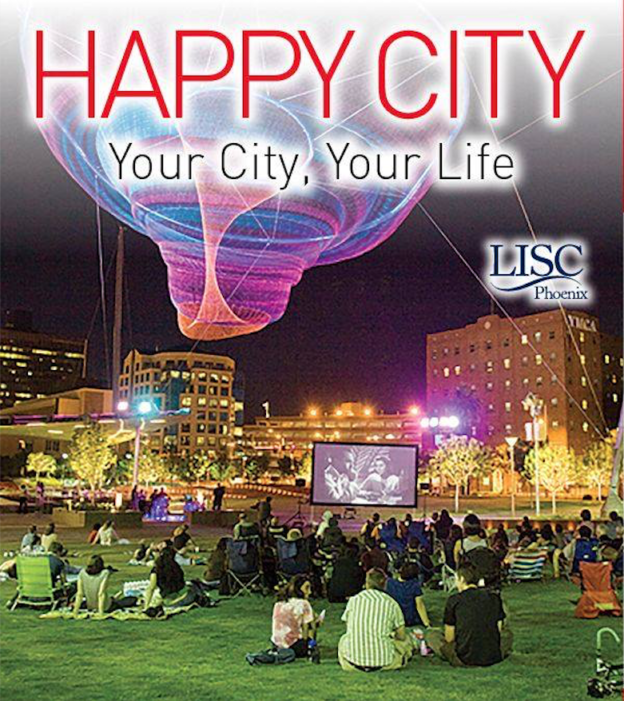
‘Happy City’ author urges push for safe, healthy transportation corridors
(Editor’s note: This blog is part of a LISC Phoenix monthly series, Communities on the Line.)
The Phoenix metropolitan area has a world-class freeway system and wide arterial streets laid out in a marvelous grid pattern to move people around and within a vast, car-dependent region. Residents can’t be happy.
Seriously. Neuropsychology, sociology and public health lessons about happiness tell us what we’ve done over 30 years to build communities and move cars in the region generally is at odds with creating environments for widespread personal satisfaction.
Urban design patterns throughout greater Phoenix discourage social connections vital to the desired human condition we call happiness or well-being, urbanist Charles Montgomery said during a recent visit. A growing body of scientific research tells us unhappiness invites social, health and economic miseries that stifle individual and community prosperity, he said.
“Cities really do make or break our well-being in their systems, through architecture, through public space,” Montgomery said. “They change how we feel, they change how we move and they change how we treat other people in ways most of us don’t even realize.”
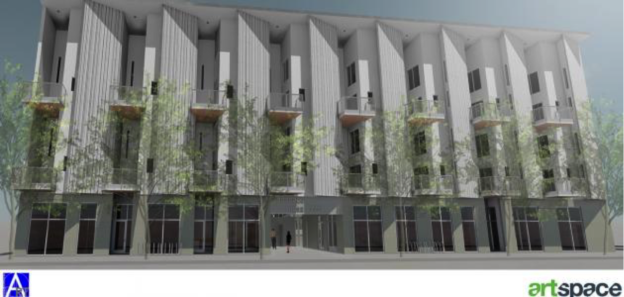
Mesa Artspace Lofts will have good bones
(Editor’s note: This blog is part of a LISC Phoenix monthly series, Communities on the Line. The illustration is an artist rendering of Mesa Artspace Lofts.)
In July 2015, business leaders, community development experts, arts advocates and city officials took a bus tour of a downtown Mesa area transformed by creative placemaking and transit-oriented development. John C. Williams, president of the Federal Reserve Bank of San Francisco and Mesa Mayor John Giles was among them.
Tour stops highlighted strengths and challenges. Just south of Main Street, Giles pointed to a large, vacant lot where he hoped to see an affordable housing project built by Artspace, a nationally known developer of projects that support artists. “It has potential,” Williams quipped, as if assessing a fixer-upper. “Yes, it has good bones,” Giles replied, not missing a beat.
Mesa Artspace Lofts, a 50-unit, live-work apartment complex built especially for artists, had a ceremonial groundbreaking today (May 24). The permanent affordable housing complex at 155 S. Hibbert St. will have good bones. It’s also a transit-oriented development that will strengthen the beating heart of a disconnected neighborhood near the Valley Metro light-rail corridor.
Bazaar days make a world of difference at 19th/Camelback
Note: This blog is an installment of the LISC Phoenix monthly series, “Communities on the Line.”
The area near the Park-n-Ride lot at 19th Avenue and Camelback Road is one of the most ethnically rich, culturally diverse parts of Phoenix. It has been for decades, largely because of a large concentration of immigrants, including refugees who are part of resettlement programs.
It is one thing to find shelter. It is another thing for refugees and immigrants far removed from the life and culture they knew to earn a living that affords the coveted American dream.
But that, too, is happening in neighborhoods near the Park-n-Ride at the Valley Metro light-rail stop at 19th Avenue and Camelback Road. Organizations like the International Rescue Committee and Local First Arizona support a growing microenterprise business community among Phoenix immigrants and refugees. Many of the small businesses in the area — restaurants, a deli, barber shops, a clothing store — are owned by refugees who became U.S. citizens.
See for yourself what’s happening in the neighborhood. On May 6, the third World Bazaar and Phoenix Community Market at the Park-n-Ride lot will offer food, crafts and entertainment that reflect the cultures hidden in plain view in Phoenix. The free, family-friendly event is from 10 a.m. to 2 p.m.

Creative economic development efforts grow success in downtown Mesa
(Note: This blog is an installment of the LISC Phoenix monthly series, “Communities on the Line.”)
On a sunny March afternoon in downtown Mesa, a rooster’s call is louder than a light-rail train’s toots, a retiree tends a plot of an urban garden wrapped in local artists’ murals, and a party of four repeat customers talks shop during a meal at a restaurant with Mesa roots running deeper than the business planted there four years ago.
Welcome to LISC-style economic development. The nonprofit’s focus on small business, transit-oriented development and creative placemaking to help build community are on full display at the Southside Heights commercial corner that is home to the popular República Empanada restaurant and the Mesa Urban Garden.
The northeast corner of First Avenue and Hibbert Street, just south of Main Street, is also an example of an effective “survive and thrive” community development strategy to help neighborhoods through the disruption of Valley Metro light-rail construction.
“Community development is community building,” said Terry Benelli, executive director of LISC Phoenix. “You accomplish that by building trust with residents and businesses of the neighborhood. I’m really proud of how things happened.”
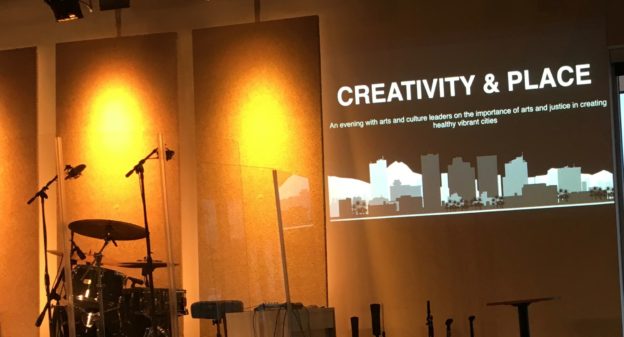
Arts, social justice initiatives could have dramatic impact in South Phoenix
(Note: This blog is part of ongoing work on behalf of LISC Phoenix to underscore the importance of comprehensive community development strategies.)
South Phoenix is “ground zero” for a comprehensive community development strategy that makes art and social justice important parts of neighborhood revitalization. What that means in theory and practice depends on how the table is set and who is seated there, according to a panel of community organizers and urban planning experts.
The panelists at the LISC Phoenix-sponsored event generally agreed that reaping broad-based benefits from arts and justice initiatives requires a commitment to collaboration and a willingness among community development professionals and neighbors to do things differently.

Resistance? How about persistence infused with insistence?
It’s a good day when references to Sisyphus, Machiavelli and John Adams pop up in perfect moments during a short interview. What a departure from the unavoidable social media poison accepted as civic engagement and productive discourse.
Thoughtfulness and community spirit can sprout and grow in the harshest political and social landscapes. Phoenix, in many respects, is such a place. But here’s a riff that warms my heart. It’s by a Valley business leader, who would be considered a conservative in another time and place, discussing one challenge of making Phoenix the healthy, inclusive, resilient place it should be:
“I’m very passionate about a legacy for this community, for my children and my grandchildren to have a cultural economy that feeds the soul of the community but also attracts and retains the kinds of businesses that we need for economic development. It’s critical to our success. And while people will say that with platitude and with words, there is not a lot of action. I’m one of the lone rangers out there just beating the drum. I think I’m like John Adams: I’m obnoxious and disliked about this, but, nonetheless, it’s important. In my world, no is just the beginning of the conversation.”
Word. Right on. Amen.
Getting to “yes” on healthy societal changes requires a long view, steadfastness and commitment.
Persistence.
The resistance language spoken so loudly today in the public square means nothing without persistence. Resistance movements are often spirited are difficult to sustain.
Persistence infused with insistence endures. The most effective change agents have led righteous persistence movements.
Establishing an American society where human values are self-evident is a work in progress. It always has been. The best work on universal goals always has been at the local level — by city block, neighborhood and zip code and by school, city council and legislative districts. An insistence on doing the right thing changes the world around you.
That principled work is harder in some moments than in others. “No” can sound emphatic, and it’s dispiriting. We’re in one of those moments. Persistence pushes us forward on the path to “Yes!”
People in my world temper worries about the nation
It’s Friday the 13th and I’m thinking about my incredibly lucky start to what will be one of the most challenging years of our lives. Worries about my nation are allayed by dozens of people who were part of my world during the first weeks of 2017.
A mix of serendipity and intentionality put me in contact with people who understand that strengthening the place where we live helps build a more perfect union. Some of them are adding to their proud legacies. Others are hard workers who are committed to finishing important work they’ve started. Some are just getting started.
Yes we can. Yes we did. Yes we will. Sí, se puede. Indeed.
Want to fix what ails us? Listen and learn
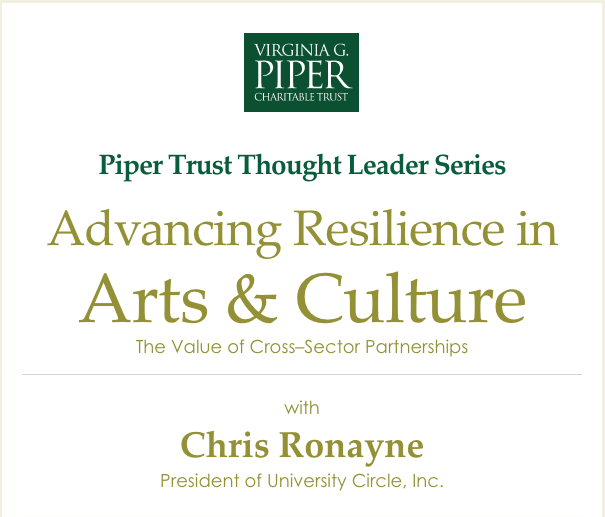 The New Year begins with calls to address the fallout of what can fairly be described as the great political earthquake of 2016. Yes, let’s do act with newfound determination to make things better, but let’s also make an investment of time and effort to think before we act.
The New Year begins with calls to address the fallout of what can fairly be described as the great political earthquake of 2016. Yes, let’s do act with newfound determination to make things better, but let’s also make an investment of time and effort to think before we act.
Next week, there are two fantastic opportunities to immerse in thoughtfulness that informs efforts to create the kind of healthy, productive society we want in the Valley. On Tuesday, the Virginia G. Piper Charitable Trust will host an installment of its Thought Leaders Series with a focus on “Advancing Resilience in Arts and Culture: The Value of Cross-Sector Partnerships.” The forum at the Beus Center for Law and Society in downtown Phoenix is open to the public.
As a Piper Trust thought leader, Chris Ronayne, president of University Circle in Cleveland, an innovative square mile of urban development that features universities, hospitals, museums, parks, restaurants and residential spaces, will share lessons learned about creating a resilient community that has become a destination point for living, working and playing.
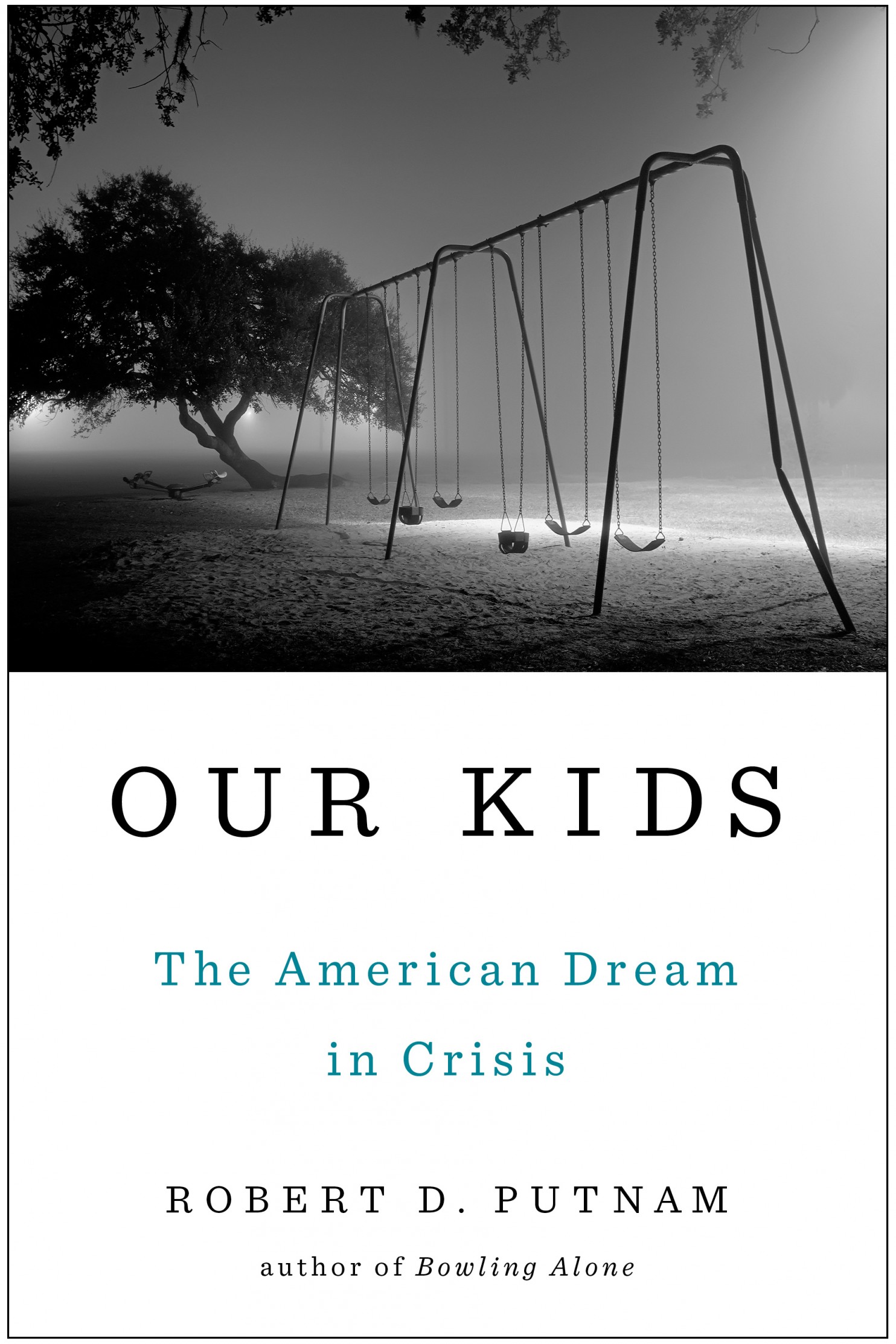 On Thursday at South Mountain Community College, the Arizona Community Foundation, the Center for the Future of Arizona and the Girl Scouts–Arizona Cactus-Pine Council will host a conversation with Robert Putnam, author of the fantastic book Our Kids: The American Dream in Crisis, which dug deeply into the perils of the growing opportunity gap among young people in the United States. The book published in 2015 speaks to the dangers of unequal opportunity, and it proved to be a fascinating precursor to some of what transpired in the national election.
On Thursday at South Mountain Community College, the Arizona Community Foundation, the Center for the Future of Arizona and the Girl Scouts–Arizona Cactus-Pine Council will host a conversation with Robert Putnam, author of the fantastic book Our Kids: The American Dream in Crisis, which dug deeply into the perils of the growing opportunity gap among young people in the United States. The book published in 2015 speaks to the dangers of unequal opportunity, and it proved to be a fascinating precursor to some of what transpired in the national election.
While we ramp up resolve in 2017 to fix what clearly is broken and to protect programs and values we fear are under assault, let’s embrace fundamental change in our approaches to building up society. Let’s listen and learn before we act.
Don’t dismiss the values of centrists
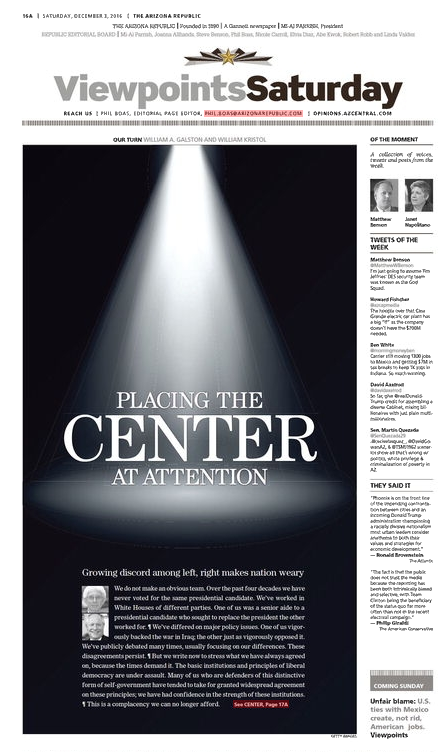 I’ve been floating in the center space that William A. Galston and William Kristol write about for a long time. Those who occupy center left and center right are often accused by those on the far left and far right as being fence-sitters, of having no core values. That’s offensively dismissive.
I’ve been floating in the center space that William A. Galston and William Kristol write about for a long time. Those who occupy center left and center right are often accused by those on the far left and far right as being fence-sitters, of having no core values. That’s offensively dismissive.
Those in the center can fairly be accused of sitting on the sidelines while the partisan left and the right duke it out. That’s been a mistake and we see the lack of good governance that results.
I love this in the duo’s Viewpoints column:
“The basic institutions and principles of liberal democracy are under assault. Many of us who are defenders of this distinctive form of self-government have tended to take for granted widespread agreement on these principles; we have had confidence in the strength of these institutions. This is a complacency we can no longer afford. …
Opportunity, security, accountability, ingenuity — these are the pillars of a New Center. We do not know what policies a New Center will yield. Nor can we predict what institutional form or even party alignment it will take.
But the alternative to a coherent and effective New Center is a degree of public discontent that could end by undermining democratic self-government itself. ”
Trump adds another twist to my hometown’s saga
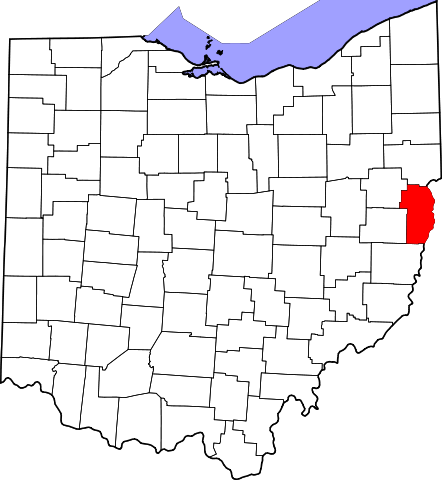 Smithfield, Ohio: My hometown. My Mom’s hometown. Her father’s hometown. It had hopes for an Obama administration in 2008. Now it’s an example of Trump populism.
Smithfield, Ohio: My hometown. My Mom’s hometown. Her father’s hometown. It had hopes for an Obama administration in 2008. Now it’s an example of Trump populism.
The photo with the Business Insider article, “A small town in Ohio holds clues to Trump victory,” shows the North and Main street sign. I had a wonderful childhood on North Street where Mom and Dad built a home more than 60 years ago.
The small town’s history has interesting twists and turns. It was a stop on the Underground Railroad. Quakers had a lot to do with that.
In Mom’s youth, there was a movie theater. It was segregated. Blacks had to sit in the balcony. Decades later her brother would become mayor.
Mom tells of the time some of her kin and their friends crashed a Klan rally. Whatever happened that night made it so my generation didn’t have to deal with that, at least not until I was in high school and some out-of-towner grand wizard threatened to hold a rally. My friends, mostly white, told me not to worry about it. The rally never happened.
There were several churches back in the day when the town was booming at about 1,000 people. Dad championed ecumenical services. Pastors delivered sermons at our church. Dad took the pulpit in theirs.
The town is surrounded by beautiful farmland. Fathers’ hard work in steel mills and coal mines put a lot of kids through college.
It’s a different place today. It has taken a turn for the worse. I’m so sorry about that.
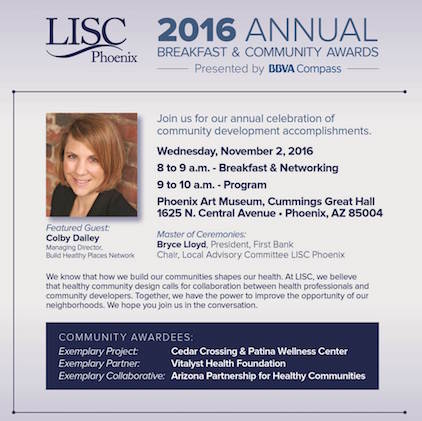
LISC Phoenix celebration
Quick-turnaround artist
JDD Specialities has skills honed in a long career in daily journalism to produce content quickly. This article about a client’s major event was delivered in less than 24 hours.
For those who love wine, politics and a good cause
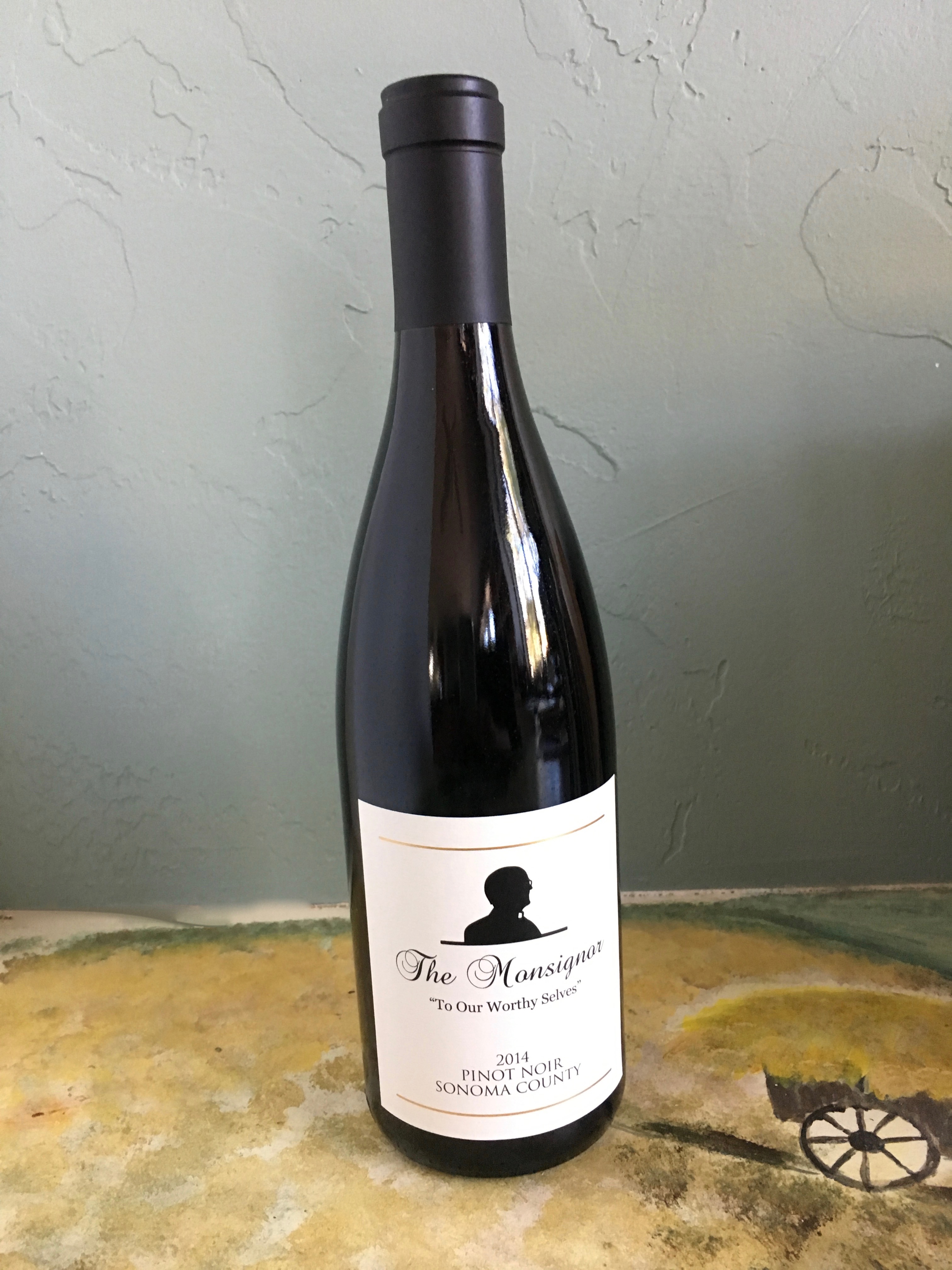 I like to think the late Monsignor Ed Ryle would have been an intellectual voice of reason, compassion and greater good in this awful excuse for a presidential campaign. I would have loved to have heard his take on the minimum wage proposition on the Arizona ballot and the campaign for Maricopa County sheriff.
I like to think the late Monsignor Ed Ryle would have been an intellectual voice of reason, compassion and greater good in this awful excuse for a presidential campaign. I would have loved to have heard his take on the minimum wage proposition on the Arizona ballot and the campaign for Maricopa County sheriff.
I flatter myself by thinking he would have invited me to lunch (or to “break bread,” as someone reminded me he was fond of saying) to share thoughts about politics and policy. On election night, he might have been spotted sipping a glass of wine with other political junkies.
He is so missed.
A few of his friends and those who have had long respected Monsignor Ryle’s work for social justice in Arizona have been trying to keep his memory alive. The Monsignor Edward J. Ryle Fund was established to promote intelligent discourse in the public square. We think he’d be proud of the work done in his name.
I like to think he’d get a kick out of the way we help pay for annual programs. We sell a lovely Sonoma County pinot noir labeled in his honor, called The Monsignor.
We’re taking orders for full and half cases now. It will be available for pickup on Dec. 6. Contact me for details.

Encore Prizes
Brief profiles of excellence
The Virginia G. Piper Charitable Trust gave JDD Specialities LLC the honor of writing short profiles of the 2016 awardees of Encore Prizes for Exceptional Organizations. The 2017 award will go to an exceptional individual.

Be Kind America
Supporting a national campaign
The Be Kind People Project, a Phoenix-based nonprofit organization, launched its national Be Kind America campaign in October 2016. JDD Specialties provided communication support and helped implement the initiative.

Boiling hot #notokay makes me stew – again
A source rubbed his hand on my butt. “God, you’ve got a nice ass,” he said. I was 40-something.
That’s my contribution to the astonishing #notokay phenomenon igniting a soocial media national conversation about sexual assault.
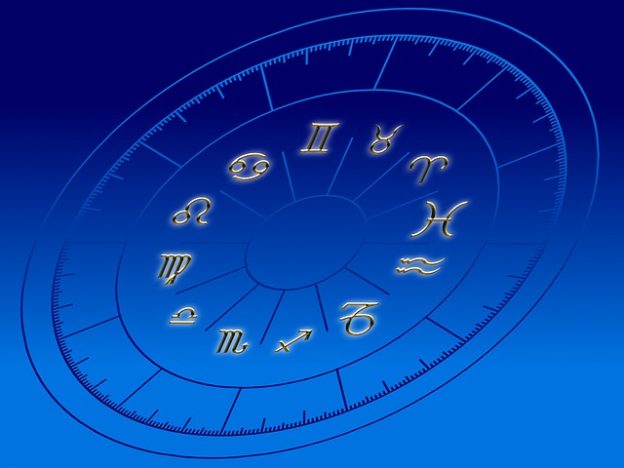
Horoscope tells the story of my life
“To be persuasive, you have to get the facts right — a no-brainer for you. Details and integrity are the spokes in your wheel. Now you just need to give those facts an emotionally compelling context and you’ll be set. — Horoscope, Aug. 25, 2016
Reading my daily horoscope is a guilty pleasure. A couple of times a year it’s exactly right. Like today.

Breaking a sweat with gym dumbbells
A dumbbell spoke at my morning workout at the gym.
A young personal trainer dispensed all sorts of social and business advice to his young client during warm-up on the elliptical. The trainer looks like a short, buff Ken doll. The equally buff client is, shall we say, swarthy. Dark and handsome.
Their conversation about women and business is what you might hear at a young bucks’ happy hour or the 19th hole or maybe the break room near the executive suites. Ken doll is schooling Dark-and-handsome on the dangers of having a serious relationship while trying to be a successful entrepreneur. There’s no time for the kind of commitment a girlfriend wants when you’re trying to get ahead, he said.
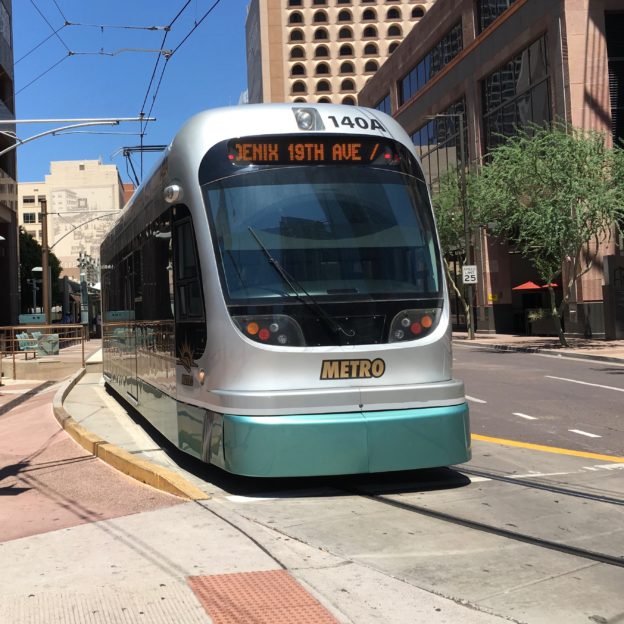
South Central Extension: All Aboard!
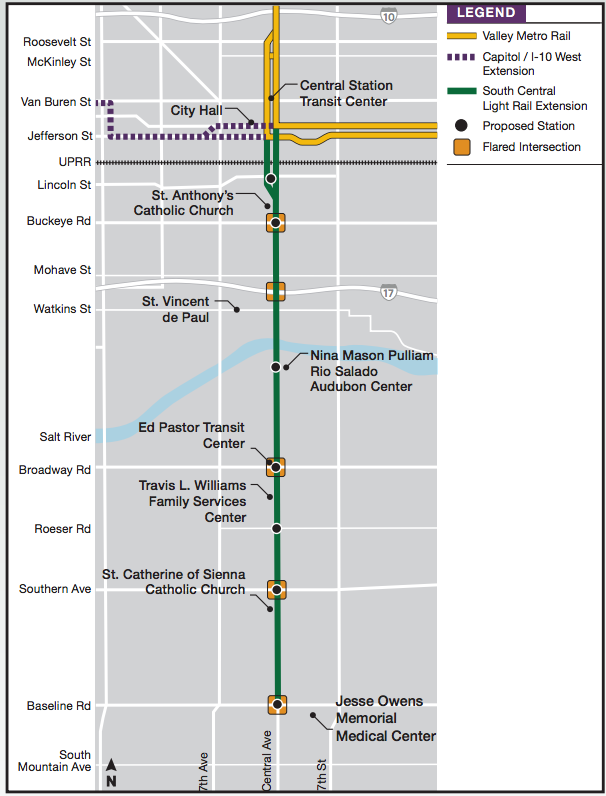 Valley Metro Rail’s South Central Extension is like no other for its potential to create healthy, vibrant communities in a corridor long suffering from neglect and disinvestment. It’s heartening three years before construction to see concerted effort to not blow it.
Valley Metro Rail’s South Central Extension is like no other for its potential to create healthy, vibrant communities in a corridor long suffering from neglect and disinvestment. It’s heartening three years before construction to see concerted effort to not blow it.
The 5.5-mile extension will connect a south Phoenix population that’s highly dependent on public transportation to the larger region. And as the original light-rail route and subsequent extensions have shown, the $700 million South Central Extension will spark incredible transit-oriented development projects.
Albert Santana, light-rail administrator for the city of Phoenix, said other extensions of the light-rail systems were like rubber bands. They stretched the original route to the east and to the northwest. The Southwest Extension is like a spoke. It is connecting the light-rail system to an entirely new part of town, he said.

South Central Extension
Disseminating information
There are many stories to be told about the 5.5 mile South Central Extension of the Valley Metro light-rail system. An article about a Ford Foundation workshop on equitable transit-oriented development (eTOD) for the underserved South Central corridor is the first of many articles JDD Specialties will write about the $700 million public transportation infrastructure project and its impact on residents and businesses.

McCain follows GOP leader on a warpath
How John McCain can condemn Donald Trump for outrageous statements, such as those leveled at the Gold Star Khan family, but still endorse the Republican nominee for president is a fair question that’s easy to answer. It’s because he’s walked in Trump’s shoes and lived triumphantly as a politician to benefit from it.
Arizona’s senior senator and the 2008 Republican nominee for president knows a thing or two about saying stupid, incredibly cruel things, often about people who deserve better. McCain also knows it doesn’t take much for voters, especially political party faithful, to forgive, forget and elect. McCain has benefitted from Arizona voter magnanimity for 34 years as a U.S. representative and senator.
Cynicism threatens American democracy
“Cynicism is a refuge for cowards.”
— Sen. Cory Booker, D-NJ, at the Democratic National Convention in Philadelphia
 Cynicism as a scourge of civic engagement is a familiar theme of Cory Booker’s speeches. The highly quoted riff in his speech Monday at the Democratic convention is particularly on point in this long, bitter, depressing political season.
Cynicism as a scourge of civic engagement is a familiar theme of Cory Booker’s speeches. The highly quoted riff in his speech Monday at the Democratic convention is particularly on point in this long, bitter, depressing political season.
“Cynicism is a refuge for cowards.” Booker is right. But Tom Wolfe’s words in The Bonfire of the Vanities also speak directly to 2016 American democracy when he described cynicism as “a cowardly form of superiority.”
Wish I had said that: Bush, Brooks, Cooke, Stevenson are on point
My list of things I wish I had said grew a lot this week — a week that from start to finish was full of highlights of a world seemingly gone mad. Relief from despair comes from hearing and reading words that struck a chord.
George W. Bush, David Brooks, Charles Cooke and Bryan Stevenson were on point with these gems that make sense and give hope.
I’m proud of you, Chief Brown
 Dallas Police Chief David O. Brown is a profile in courage. He is so grounded in reality. I’ve enjoyed watching him lead. What he said about the impossible demands placed on police officers as quoted in the New York Times is truth in boldface. We have so much work to do.
Dallas Police Chief David O. Brown is a profile in courage. He is so grounded in reality. I’ve enjoyed watching him lead. What he said about the impossible demands placed on police officers as quoted in the New York Times is truth in boldface. We have so much work to do.
“Every societal failure, we put it off on the cops to solve. Not enough mental health funding, let the cop handle it. Not enough drug addiction funding, let’s give it to the cops. Here in Dallas we got a loose dog problem. Let’s have the cops chase loose dogs. Schools fail, give it to the cops. Seventy percent of the African-American community is being raised by single women. Let’s give it to the cops to solve that as well.”
“Policing was never meant to solve all those problems,” he said.
Trump: Getting to the heart of the matter
I think Mom’s cardiologist nearly had heart attack during her checkup.
Mom and Doc always chitchat during visits, usually about his growing up in Detroit in the ’60s and their shared appreciation of Sam Cooke.
But then Donald Trump’s name came up and I chimed in. I challenged his assertion that “there’s no way, NO WAY” Trump wins the election. When I mentioned “Brexit” and the populist similarities in U.S. politics, the usually laid-back jazz-lover got flushed and started scooting his little wheeled doctor’s stool in a back-and-forth motion.
“It’s not going to happen. Never. NEVER,” Doc said. “I’ll get you any bottle of wine you want if he wins.”
No offense to great photogs, but it’s possible to love a crappy photo
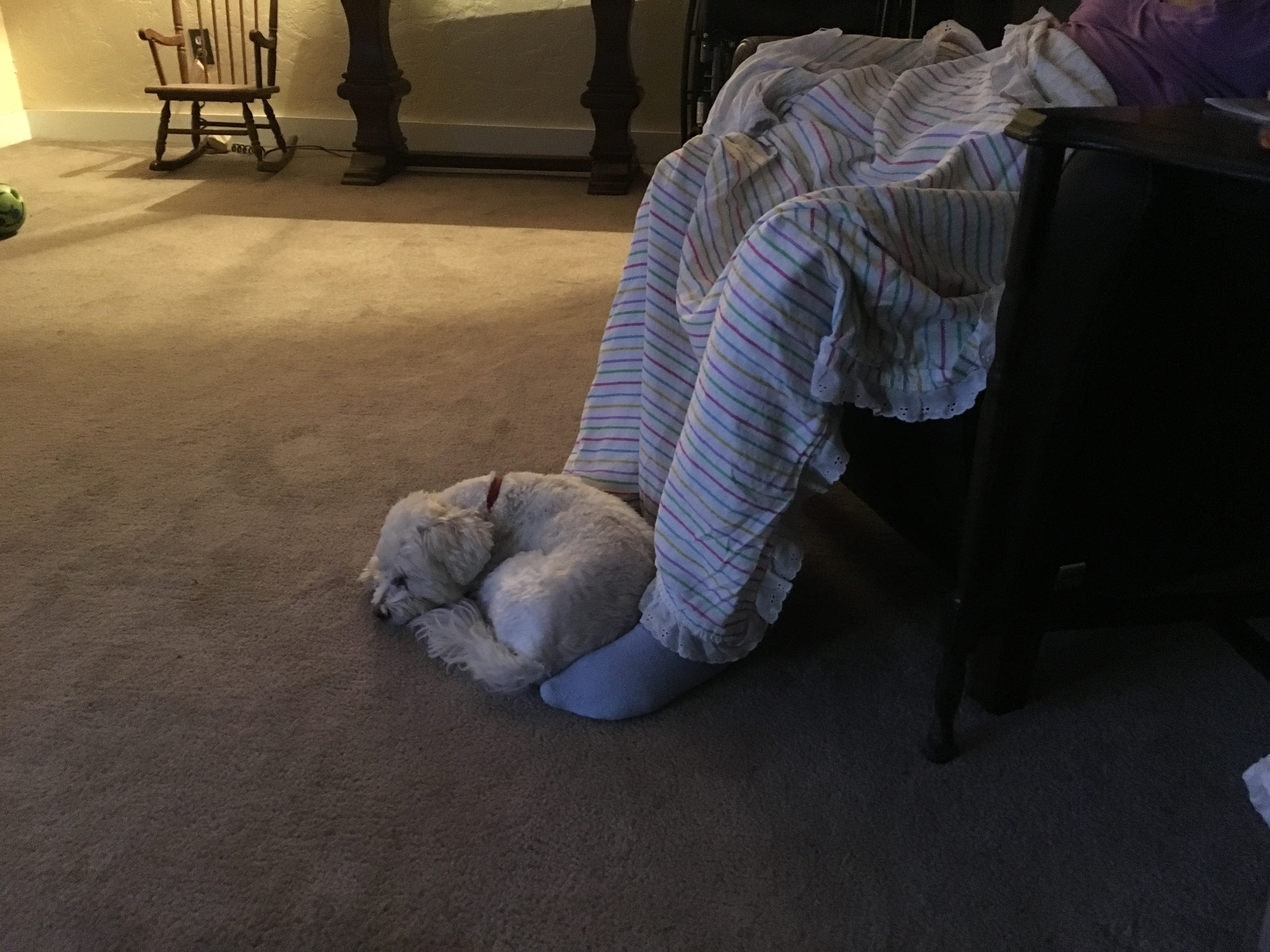 I know a good photo when I see one. This is a crappy photo. Here’s why I love it:
I know a good photo when I see one. This is a crappy photo. Here’s why I love it:
There snoozes, Auggie, my hyperactive grandpup. When he’s not channeling his inner greyhound doing laps around the house, he catnaps. The space between my mom’s socked feet is his new go-to spot for some shut eye. Mom doesn’t notice because she’s napping, too, a frequent habit with the lower energy level of the last few weeks.
